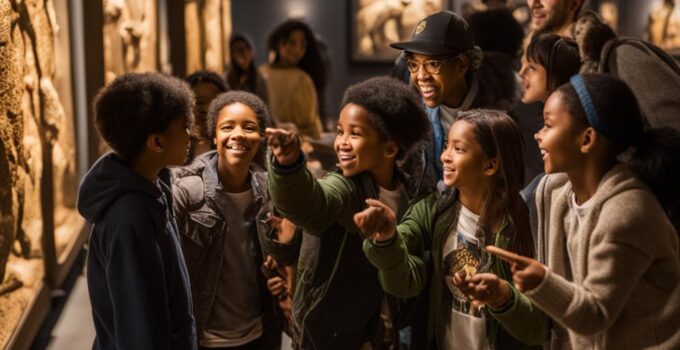

Field Trip Fundamentals: Understanding the Essence of Educational Visits
Table of Contents
Welcome to our comprehensive guide on educational visits, also known as field trips, and their importance in the learning journey of students. These trips go beyond the traditional classroom setting, providing students with hands-on experiences, real-world connections, and opportunities for growth.
Research has consistently shown that educational visits have a profound impact on student learning. Through experiential learning, students develop a deeper understanding of the concepts taught in the classroom and gain valuable knowledge. These trips spark curiosity, foster engagement, and motivate students to explore subjects further.
Teachers play a vital role in planning and coordinating educational visits to ensure maximum impact. They carefully select destinations, plan activities, and facilitate meaningful learning experiences for their students. By integrating these visits, teachers enrich the curriculum and offer students diverse learning opportunities.
Key Takeaways:
- Educational visits, or field trips, enhance student learning by providing hands-on experiences.
- Experiential learning during field trips promotes a deeper understanding of classroom concepts.
- Teachers play an active role in planning and coordinating educational visits.
- Educational visits enrich the curriculum and offer students diverse learning opportunities.
- Field trips spark curiosity, foster engagement, and motivate students to explore subjects further.
The Importance of Experiential Learning
Experiential learning is a key aspect of educational visits. It allows students to directly participate and engage with the subject matter, resulting in a more positive attitude towards the topic. Numerous studies have shown that students who participate in field trips gain valuable knowledge and develop a deeper understanding of the concepts they learn in the classroom. Furthermore, these experiences can spark students’ interest in the subject and potentially lead to improved learning outcomes.
The Benefits of Experiential Learning
During educational visits, students have the opportunity to apply theoretical knowledge in practical ways. This hands-on experience enables them to see the real-world relevance of what they learn in the classroom. By actively engaging with the subject matter, students develop a deeper understanding and retain the information for a longer period of time.
Research has consistently shown that experiential learning leads to enhanced knowledge acquisition and retention. For example, a study conducted by Smith et al. (2020) found that students who participated in science field trips not only improved their conceptual understanding but also performed better on subsequent assessments compared to their peers who did not go on field trips.
Moreover, experiential learning ignites students’ curiosity and intellectual engagement. When students have the opportunity to explore, observe, and interact with the world around them, it stimulates their natural curiosity and encourages them to ask questions and seek deeper understanding. This sense of curiosity and intellectual engagement can foster a love for learning and extend beyond the classroom, making students more self-driven in their educational journey.
Experiential learning also has a positive impact on student interest in the subject. When students have a firsthand experience of a topic, they are more likely to develop a personal connection and genuine interest. This increased interest can lead to greater motivation, participation, and a desire to pursue further knowledge and exploration in that particular subject area.
To further illustrate the importance of experiential learning, let’s take a look at a real-world example:
This immersive experience allows students to develop a deeper understanding of marine biology concepts, appreciate the complexity of marine ecosystems, and witness the real-world impact of science. By engaging in experiential learning, students not only acquire knowledge but also develop critical thinking, problem-solving, and collaboration skills that are essential for their future success.
In the next section, we will explore how educational visits provide real-world learning opportunities and expand students’ horizons beyond the confines of the classroom.
Real World Learning Through Field Trips
Field trips offer students a unique opportunity to gain real-world experience and engage in hands-on learning outside the classroom. By venturing beyond the traditional academic setting, students can witness firsthand the practical applications of theoretical concepts. These educational visits to captivating field trip destinations allow students to experience the rich cultural heritage and natural beauty of different locations, leaving a lasting impact on their understanding and appreciation of the subject matter.
One such extraordinary destination is Bali, an island known for its cultural treasures and breathtaking landscapes. Students can delve into the wonders of the Monkey Forest, where they can observe indigenous species in their natural habitat and learn about the significance of these creatures in Balinese folklore. Another remarkable field trip destination in Bali is the Ulun Danu Bratan Temple, a sacred Hindu temple located on the shores of Lake Bratan. Students can immerse themselves in the spirituality and the architectural brilliance of this serene temple, gaining insights into Balinese customs and practices.
These field trips offer students more than just a change of scenery; they provide them with real experiences and interactive learning opportunities that stimulate curiosity and foster a deeper understanding of the subject matter. Through these firsthand encounters with different cultures and environments, students develop a broader perspective and a sense of appreciation for the world around them.
Let’s take a closer look at how real-world experience and hands-on learning during educational visits can impact student learning:
Benefits of Real-World Experience
Table: Key Benefits of Real-World Experience
Real-world experience through field trips provides students with a multidimensional learning experience that cannot be replicated within the confines of a classroom. As they explore field trip destinations like Bali’s Monkey Forest and Ulun Danu Bratan Temple, students engage with real-life examples of the subjects they study, creating lasting memories and a deep connection to the material. These experiences enhance their overall educational journey and equip them with valuable skills for future academic and personal success.
Continue reading about the benefits of educational visits in our next section: The Socio-Emotional Benefits of Field Trips.
The Socio-Emotional Benefits of Field Trips
Field trips offer more than just academic learning; they also provide valuable socio-emotional benefits for students. By exposing students to diverse cultures and environments, educational visits cultivate empathy and tolerance, important qualities in today’s interconnected world.
Interacting with individuals from different backgrounds fosters empathy, allowing students to develop a deeper understanding and appreciation for others’ perspectives and experiences. Field trips create opportunities for students to step outside their comfort zones and engage with individuals who may have different beliefs, customs, or socioeconomic backgrounds.
Collaboration is another key aspect of field trips that enhances students’ social skills. Working together with their peers and adult guides during educational visits promotes effective communication, teamwork, and problem-solving. Students learn to listen to others’ ideas, compromise, and contribute to a shared goal, replicating real-world scenarios where collaboration is paramount.
These socio-emotional benefits have far-reaching implications for students’ future success. Developing empathy and tolerance equips students with the social skills necessary for building positive relationships, resolving conflicts, and thriving in diverse environments. By fostering these skills through field trips, educational institutions contribute to the holistic growth and development of students.
Examples of Socio-Emotional Benefits:
- Increased empathy and understanding of different cultures
- Enhanced tolerance towards others’ perspectives and experiences
- Improved communication and teamwork skills
- Development of problem-solving abilities
By embracing field trips as an integral part of education, we nurture the socio-emotional growth of students, promoting a more compassionate and inclusive society.
Academic Impact of Field Trips
Research has consistently shown the significant impact of field trips on students’ academic performance. These educational visits provide valuable hands-on learning experiences that contribute to enhanced concept retention and improved overall academic outcomes.
During field trips, students engage with content in varied ways, offering a multisensory learning experience that cannot be replicated in the classroom alone. This active participation allows students to apply theoretical knowledge to real-world contexts, deepening their understanding of the subject matter.
Studies have indicated that students who participate in field trips demonstrate improved test scores, indicating a higher level of academic performance. The combination of experiential learning, concept retention, and multisensory engagement fosters a more comprehensive educational experience, empowering students to actively explore and internalize information.
Benefits of Field Trips for Academic Performance:
- Enhanced concept retention through hands-on learning experiences
- Improved test scores and academic performance
- Deeper understanding of subject matter
- Application of theoretical knowledge in real-world contexts
- Engagement with content through multisensory learning
In summary, field trips have a profound impact on students’ academic performance by providing them with immersive learning experiences that promote concept retention and foster a deeper understanding of the subject matter. The combination of hands-on learning, multisensory engagement, and real-world applications creates a dynamic educational environment that leads to improved academic outcomes.
Enriching the Curriculum Through Field Trips
Field trips provide an opportunity to enrich the curriculum and offer students a more comprehensive learning experience. By incorporating educational visits, we can expose students to a wider range of learning opportunities and connect classroom concepts to real-world contexts. These diverse experiences allow students to gain a deeper understanding of the curriculum and make meaningful connections between different subjects.
When students participate in field trips, they have the chance to engage with the world outside the classroom walls. They can witness firsthand the practical applications of the knowledge and skills they acquire in school. Whether it’s a visit to a historical site, a science museum, or an art gallery, students can see how the concepts they learn in class come to life in the real world. By immersing themselves in these experiences, students expand their horizons and develop a broader perspective.
Field trips also provide an opportunity for curriculum expansion. Teachers have the flexibility to tailor the curriculum to the specific needs and interests of their students. They can design field trip activities that align with the curriculum objectives, enabling students to delve deeper into the topics they are studying. For example, a science field trip to a nature reserve can expand on biology lessons by allowing students to observe and study different ecosystems and the biodiversity within them.
Furthermore, field trips foster a multidisciplinary approach to learning. Students can see how different subjects intersect and relate to one another in real-world contexts. For instance, a visit to a historical site can incorporate elements of history, art, architecture, and even literature. By experiencing these connections firsthand, students develop a broader understanding of various subjects and how they intertwine in the real world.
Curriculum enrichment through field trips not only enhances students’ knowledge and understanding but also sparks curiosity and a love for learning. Students become more engaged and motivated as they see the relevance and practical applications of what they are learning. By broadening their educational experiences, we help students develop a thirst for knowledge that extends beyond the traditional confines of the classroom.
Benefits of Curriculum Enrichment through Field Trips:
- Enhanced understanding of curriculum concepts
- Meaningful connections between different subjects
- Flexibility to tailor the curriculum to student needs
- Promotion of multidisciplinary learning
- Increased student engagement and motivation
Curriculum enrichment through field trips is an invaluable tool in providing students with comprehensive learning experiences. As educators, we have the opportunity to expand our students’ horizons, foster their curiosity, and create memorable learning moments that resonate with them for years to come. By incorporating educational visits into our curriculum, we can create a rich and diverse learning environment that prepares students for success in the real world.
Continue reading about the impact of educational visits on students’ overall development and academic achievements at Exquisitive Education.
Building Lifelong Memories Through Field Trips
Field trips offer students the opportunity to create lasting memories that will stay with them for years to come. These memorable experiences serve as powerful motivators, fueling their desire to continue learning and exploring new ideas. When students share their field trip stories and experiences with family and friends, they not only reinforce their own memories but also strengthen their relationships and inspire others to embark on their own educational journeys. Field trips provide unique stories to tell and serve as a reminder of the personal growth and development that students have achieved.
Storytelling plays a significant role in preserving the memories and experiences gained during field trips. As students recount their adventures, they reinforce the knowledge and connections they formed during the trip, deepening their understanding of the subject matter. Furthermore, storytelling allows students to reflect on their own personal growth and highlight the transformative impact that field trips had on their lives.
Benefits of Building Lifelong Memories Through Field Trips
The essence of educational visits.
Educational visits, also known as field trips, offer students a hands-on experience that goes beyond the confines of the classroom. These visits provide students with the opportunity to explore and interact with different environments, cultures, and ideas. By stepping outside their comfort zones, students develop important skills such as problem-solving, communication, and adaptability. Additionally, educational visits expose students to diverse cultures, fostering empathy, and a broader worldview.
When students engage in educational visits, they have the chance to apply their knowledge in real-world contexts. Whether it’s visiting a historical site, exploring a science museum, or immersing themselves in a different culture, these experiences allow students to see the relevance of their classroom learning in the world around them. The hands-on nature of educational visits also enhances students’ understanding and retention of the subject matter.
Moreover, educational visits provide students with exposure to different cultures, fostering a sense of empathy and understanding. By interacting with people from diverse backgrounds, students develop a deeper appreciation for different perspectives and ways of life. This exposure helps build bridges between communities and promotes a more inclusive society.
Benefits of Educational Visits:
- Hands-on Experience: Educational visits provide students with practical, experiential learning opportunities that deepen their understanding.
- Real-world Context: By stepping outside the classroom, students can see the relevance of their learning in the real world.
- Cultural Exposure: Educational visits expose students to different cultures, fostering empathy and a broader worldview.
- Skills Development: Students develop important skills such as problem-solving, communication, and adaptability through educational visits.
- Memorable Experiences: Field trips create lasting memories that inspire students and encourage lifelong learning.
Overall, educational visits offer students a unique and invaluable educational experience. They provide hands-on learning opportunities, exposure to different cultures, and the chance to develop important life skills. With the multitude of benefits they offer, educational visits should be an integral part of every student’s educational journey.
Benefits for Teachers and Parents
Educational visits offer numerous benefits not only for students but also for teachers and parents. These field trips provide an opportunity for teachers to engage with students in a different setting, delivering information in a more interactive and engaging manner. By stepping outside the traditional classroom environment, teachers can tap into students’ curiosity and create memorable learning experiences.
Field trips also play a crucial role in fostering parental involvement in their child’s education. Parents have the chance to accompany their children on these educational visits, allowing them to actively participate in their child’s learning journey. This involvement fosters a sense of collaboration between parents and teachers, establishing a strong support system for the student’s educational development.
Moreover, educational visits demonstrate a commitment to providing students with a well-rounded education that extends beyond the classroom. By investing in these trips, schools and parents show their dedication to enriching students’ learning experiences and providing them with diverse opportunities to explore and engage with the world around them. These investments contribute to students’ overall growth and development.
Teacher Engagement
Educational visits rejuvenate teachers’ passion for teaching by allowing them to experiment with innovative teaching methods and interact with students outside of the usual academic environment. Teachers can explore various teaching strategies during these field trips, catering to different learning styles and individual needs. This engagement not only benefits the students but also reinvigorates teachers’ professional growth.
Parental Involvement
Field trips offer parents a unique chance to actively participate in their child’s education. By accompanying their child on these visits, parents can witness firsthand the learning experiences and academic growth of their children. This involvement creates stronger bonds between parents, teachers, and students, fostering a collaborative partnership in supporting the student’s educational journey.
Educational Investment
Investing in educational trips showcases a commitment to providing students with a comprehensive and holistic education. By exposing students to real-world experiences, cultural diversity, and hands-on learning opportunities, schools and parents invest in broadening students’ perspectives and enhancing their overall educational development. These investments contribute to students’ lifelong learning and equip them with the skills and knowledge necessary for future success.
The Value of Educational Visits
Educational visits have immense value in shaping students’ educational journey. They provide students with unique learning experiences that foster curiosity, empathy, and a deeper understanding of the world around them. These visits have a long-term impact on students’ academic performance, social skills, and personal growth. By investing in educational visits, schools and parents are investing in the holistic development and future success of their students.
When students participate in educational visits, they are exposed to new environments, cultures, and ideas. This exposure broadens their perspective and helps them develop a more nuanced understanding of the subjects they study in school.
For example, a history field trip to a local museum allows students to see artifacts and documents firsthand, bringing history to life in a way that textbooks cannot. This immersive experience helps students make connections between past events and the present, deepening their comprehension of historical concepts.
Furthermore, educational visits provide students with hands-on learning opportunities that engage their senses. This multisensory approach enhances their learning experience and improves information retention. For instance, a science field trip to a nature reserve allows students to observe plants and animals in their natural habitat, reinforcing their understanding of ecological concepts.
Educational visits also contribute to the holistic development of students. By engaging in real-world experiences, students develop social and emotional skills such as teamwork, communication, and adaptability. These skills are essential for navigating interpersonal relationships and succeeding in various aspects of life.
In summary, the value of educational visits cannot be underestimated. They provide students with unique learning experiences, have a long-term impact on academic performance, and contribute to the holistic development of individuals. Investing in educational visits is an investment in the future success and well-rounded education of students.
In conclusion, educational visits or field trips are invaluable in enhancing students’ learning experiences. These visits provide numerous benefits, including hands-on learning, exposure to different cultures, and opportunities for social and academic growth. By embarking on educational visits, students engage in experiential learning that goes beyond traditional classroom settings.
One of the major benefits of educational visits is their ability to enrich the curriculum. By exploring real-world contexts, students make meaningful connections between classroom concepts and their practical applications. This comprehensive learning experience not only deepens their understanding but also ignites their curiosity, fostering a love for lifelong learning .
Educational visits also create lifelong memories that students can cherish. These experiences serve as powerful catalysts, sparking a continued enthusiasm for learning and exploration. Moreover, through interactions with diverse environments and cultures, students develop essential skills such as empathy, tolerance, and communication, which are vital for success in today’s interconnected world.
Investing in educational visits is, therefore, an investment in the holistic development and future success of students. Through these transformative experiences, students gain valuable knowledge, skills, and a broader worldview that extends far beyond the confines of the classroom, enabling them to thrive in an ever-evolving, global society.
About The Author
Ethan Emerson
Ethan Emerson is a passionate author and dedicated advocate for the transformative power of education. With a background in teaching and a love for writing, Ethan brings a unique blend of expertise and creativity to his contributions on ExquisitiveEducation.com .His articles are a delightful mix of insightful knowledge and engaging storytelling, aiming to inspire and empower learners of all ages. Ethan's mission is to ignite the spark of curiosity and foster a love for learning in every reader.Ethan Emerson, is your companion in the realm of general education exploration. With a passion for knowledge, He delves into the intricate world of Education Expenses & Discounts , uncovering financial insights for your educational journey. From the vitality of Physical Education to the synergy of Education & Technology , Ethan's here to bridge the gap between traditional and innovative learning methods. Discover the art of crafting impressive Resume & Personal Documentation in Education , as well as insights into diverse Career Paths, Degrees & Educational Requirements . Join Ethan in navigating through a sea of Educational Courses & Classes , exploring the nuances of various Education Systems , and understanding the empowering realm of Special Education . With an eye on Teaching & Teachers , He offers a glimpse into the world of educators who shape minds. Let's unlock Studying Tips & Learning Methods that turn education into a delightful journey of growth with Exquisitive Education .
Related Posts

Learning in Light: Navigating the Quaker Tradition in Education

Understanding What is Educational Media: A Comprehensive Guide

Unlocking Potential: What is Quantum Learning Explained
Leave a reply cancel reply.
Save my name, email, and website in this browser for the next time I comment.
The school visit: what to look for, what to ask
by: The GreatSchools Editorial Team | Updated: December 5, 2023
Print article
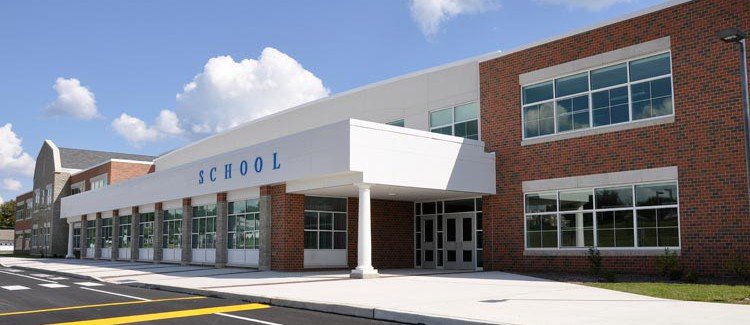
Be sure to visit all the schools on your list, if you can. A visit is the best way to determine whether a school is right for your child. Even a short visit will help you identify a school’s strengths and challenges. It’s also the only way to get a feel for a school’s climate — intangible but important factors like the dynamism of the teaching, engagement of the students, quality of communication, level of respect between students, teachers, administrators, and parents, and the overall sense that the school offers a safe and inspiring learning environment .
School visit checklists
Use this printable guide to help you plan your elementary, middle, or high school visit.
Before your visit
- Do your homework. Read about the schools you’ll be visiting. Examine their school profiles on GreatSchools.org. Talk to other parents and check your local newspaper for articles about the schools.
- Contact the school. Most schools conduct regular school tours and open houses during the enrollment season — typically in the fall. Call the school or go online to schedule a visit.
- Ask and observe. Jot down your questions before your visit (the sample questions below will help you create your list).
Key questions to ask
- Does this school have a particular educational philosophy or mission?
- What curriculum does the school use for math, reading, science, etc? Ask if the school follows the Common Core State Standards , Next Generation Science Standards , and which program(s) are they using to teach children to read ?
- What is the average class size ?
- What is this school’s approach to student discipline and safety? Do they practice restorative justice ? Are the discipline practices fair for families of color ? Do they practice corporal punishment , and if so, can you opt out of that for your child?
- How much homework do students have? What is the school’s philosophy/approach to homework ?
- What kind of library resources are available to students?
- How is technology used to support teaching and learning at this school?
- How do the arts fit into the curriculum? Is there a school choir, band or orchestra? A drama program? Art classes?
- What extracurricular opportunities (sports, clubs, community service, competitions) are available for students?
- How do students get to school? Is free school busing available?
- Is bullying a problem at the school? Does the school have an anti-bullying policy ?
- Does the school have a program for gifted students ?
- How does this school support students who have academic, social or emotional difficulties?
- What strategies are used to teach students who are not fluent in English?
- What professional development opportunities do teachers have ? In what ways do teachers collaborate?
- Does the school offer Physical Education (PE) classes?
- What are some of the school’s greatest accomplishments? What are some of the biggest challenges this school faces?
Features to look for
- Do classrooms look cheerful? Is student work displayed, and does it seem appropriate for the grade level?
- Do teachers seem enthusiastic and knowledgeable, asking questions that stimulate students and keep them engaged?
- Does the principal seem confident and interested in interacting with students, teachers and parents?
- How do students behave as they move from class to class or play outside?
- Is there an active Parent Teacher Association (PTA) ? What other types of parent involvement take place at this school?
- How well are the facilities maintained? Are bathrooms clean and well supplied, and do the grounds look safe and inviting?
Especially for elementary schools
- What are some highlights of this school’s curriculum in reading , math, science and social studies?
- What criteria are used to determine student placement in classes?
- How does this school keep parents informed of school information and activities? Are they easy to communicate with ?
- Does the school let parents know what their rights are (and aren’t ) in regards to your child’s education?
- Is quality child care available before and after school?
- How much outdoor time do kids get each day?
Especially for middle schools
- How does the school guide and prepare students for major academic decisions that will define their options in high school and beyond? Do they provide advice to parents on how to help this age group ?
- Does the school offer tutoring or other support if students need extra help?
- Are world language classes (French, Spanish, etc.) offered to students?
- If the school is large, does it make an effort to provide activities that create a sense of community ?
Especially for high schools
- Does this school have a particular curriculum focus, such as STEM (Science, Technology, Engineering, and Math) or the arts?
- What kind of emphasis does the school place on college preparation ?
- Does the school have a good selection of Advanced Placement (AP) and honors classes?
- What percentage of students take the SAT or/and ACT ?
- Where do students go after they graduate? How many attend four-year college? Are graduates prepared for college ?
- Are counselors available to help students make important decisions about classes?
- Is college counseling and support available?
- Does the school offer a variety of career planning options for students who are not college bound?
- Does the school staff set high expectations for all students?
- Does the school have a tutoring program so students can get extra help if they need it?
- How do students get to school? Is there a parking lot, and are buses (public or district-provided) available?
- Does this school have any school-to-work programs or specialized academies ?
- What is the school drop-out rate ?
Especially for charter schools
- When and why was this school created ?
- Does the school have a specific focus?
- Who is the charter holder, or the group that created the school?
- How does the school select teachers? Are the teachers certificated?
- Is this the permanent location or facility for the school? If not, will the school be moving to another location in the near future?
Homes Nearby
Homes for rent and sale near schools

Why your neighborhood school closes for good – and what to do when it does

5 things for Black families to consider when choosing a school

6 surprising things insiders look for when assessing a high school
Surprising things about high school
Yes! Sign me up for updates relevant to my child's grade.
Please enter a valid email address
Thank you for signing up!
Server Issue: Please try again later. Sorry for the inconvenience

***Some of the links below are affiliate links, meaning that at no additional cost to you, I will receive a commission if you click through and make a purchase.***
Top 12 Educational School Trip Ideas for Student Success
Table of Contents:
Learning is a never-ending process. It’s not only an educational institution that teaches you! And when it comes to students, what better way than a fun and engaging field trip!?
After all, who doesn’t enjoy a great field trip? It allowed students to leave life’s routine and experience something completely different. And, when it serves the purpose of an educational trip, students can’t wait!
But planning a school trip is more than just fun and excitement! It must add value to the students learning! If you have ideas for student educational trips, this article is for you!
Here, we list the 12 best school trip ideas to help students enhance their learning journey.
We are your companions, like the best essay writing websites that help you prepare the paper by offering abundant ideas, knowledge, and understanding of your requirements.
We’ve listed the fun learning opportunities for students of all ages at different price points that teachers can have a look at. Let’s get started!
Idea 1: Local Museums
What better way than spending a day at the local museums that hold the history of the places?
It doesn’t have to be a history museum; it could be art, science, or a combination!
Museums and school trips are both fun and educational. Students get to learn about different cultures, periods, and history and gain appreciation for the work of artists and scientists.
It is also a great approach to give a sense of belonging to them about their place’s history.
Museums are also a great way to help students write a paper about it. Instead of having to reach out to a research paper writer who already holds the ideas and expertise to write the best essay, students can do the job on their own with a bit of help from them.
Idea 2: Outdoor Adventures
Often surrounded by four walls and classes, why wouldn’t students love a fun outdoor activity? Nothing gets students outdoors like an educational trip. A trip with the teacher ensures that they are aware of what to do and what not to do, but in all, they will have great fun.
An idea of the campground or state park sounds excellent. Students will get to explore nature while learning about the environment. Further, other activities include rock climbing, zip-lining, and hiking. With, outdoor adventure trips seek additional care from teachers!
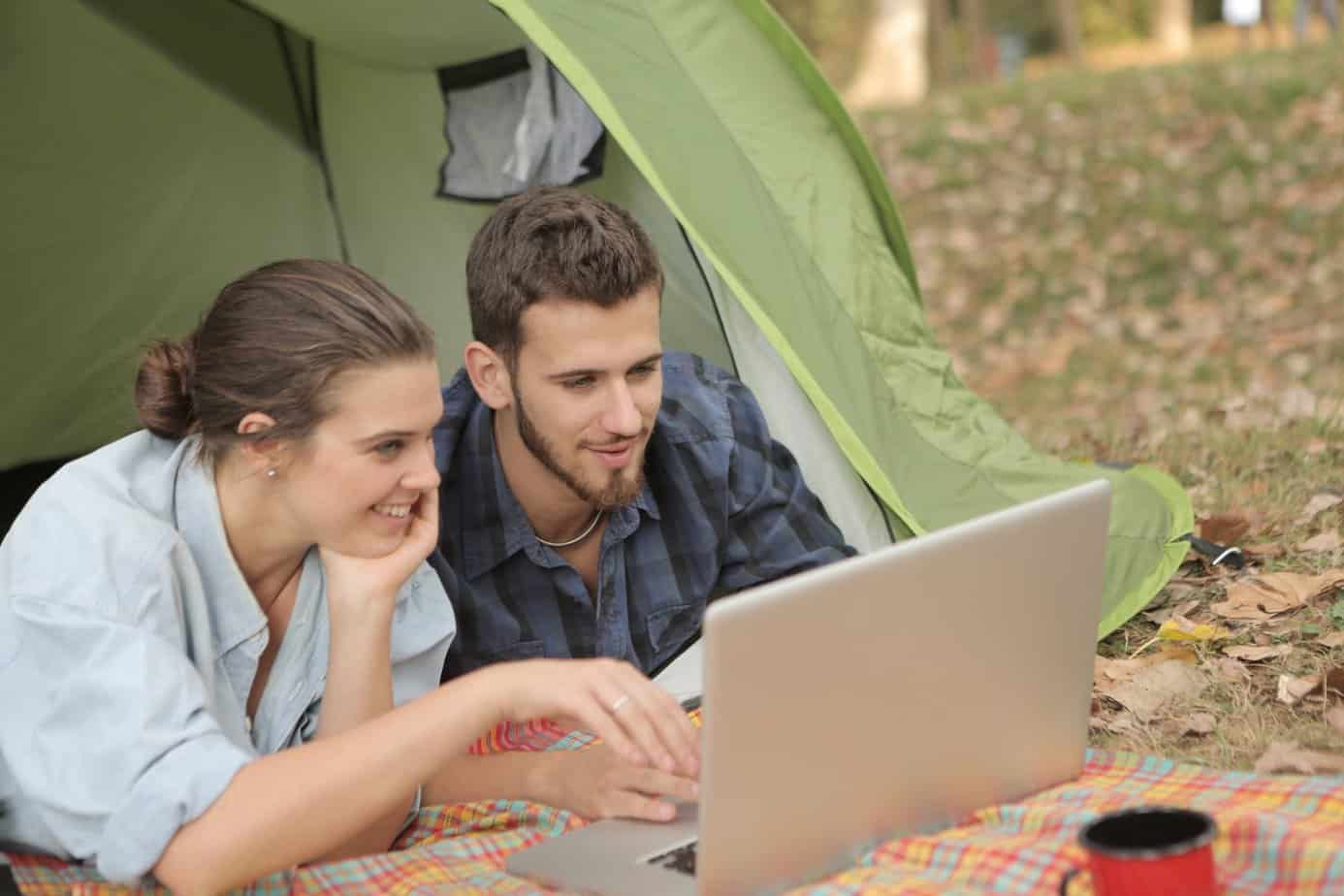
Idea 3: Cultural Destinations
When planning a school trip, consider embarking on an educational adventure at a cultural destination that speaks history and culture. It could be a historic site, a cultural center, or an archaeological site.
In such trips, students explore customs, beliefs, and cultures. Museums are also a great idea, but the cultural destination holds its value! Students can gain insight into the people’s lifestyles in other countries and the periods they lived through, and even participate in workshops to learn more about them.
Idea 4: Farm Visits
Educational trips for students , especially younger children, demand simplicity and fun learning. They barely understand the history of exploring around the museums. Here, a fun farm visit is both exciting and educational!
Farms are perfect for exploring nature closely. Such a trip with the teacher will help students learn about the importance of sustainable farm practices, healthy food choices, and animal husbandry. Plus, they’ll enjoy watching and feeding animals.
Idea 5: Aquariums and Zoos
Next on our list of school trip ideas are Aquariums and zoos. They offer many educational opportunities for students, especially the younger ones! Here, they will be able to learn about animals and their habitat.
In fact, it is a way for them to see the animals they’ve always seen on screen and paper.
In aquariums, they can uncover the ocean’s mysteries and lifestyles. Plus, it is always great to see some wildlife close!
Idea 6: Art Galleries
Art has its own way of expressing itself. It speaks differently to everyone. With art gallery trips, students can immerse themselves in art and history.
They can explore the work of famous artists, view unique art, and get a deeper understanding of cultures and traditions worldwide.
Idea 7: Theater and Dance Performance
A bit of entertainment included in the learning process does no harm. A field trip for students to theater and dance performances encourages appreciation of performing arts.
To ensure that these cultures stay extinct, the student must know what theater and dance performance is! They will be exposed to different forms of art. Further, it can be an essential lesson to them on collaboration, communication, and expression.
Idea 8: Theme Parks
The theme park is also a great field trip suggestion, depending on the subject. You can give students a thrilling educational experience at amusement or theme parks.
They can learn more about physics and engineering while riding and playing! Further, from a business perspective, they get the idea behind what it takes to run a successful business . Amusement parks are also a place to practice mathematics by calculating the cost of food and rides.
Idea 9: Industrial Sites
If your students are more into business, visiting factories and industrial sites can significantly help them.
Here, they can learn how things are made from scratch. They can learn the manufacturing process, discover the importance of safety measures, gain insight into the product, and more.
Factories can be eye-opening experiences for students to help them understand the value of hard work and effort.
Idea 10: Charity Events and Fundraisers
A learning journey towards sympathy and affection teaches a lot. When you let your students attend charity events and fundraisers, you teach them the importance of helping others.
Charity events provide great insight into how a small contribution can make a big difference. Further, charities and fundraisers can be something other than a school trip. Students can volunteer in these activities.
Idea 11: Business Tours
Business tours are a great initiative to explore the world and entrepreneurship firsthand. On such a trip, students learn about different industries and how they operate, and they even meet entrepreneurs who can share inspiring stories.
Going on a business tour and exploring a part of the world they want to become familiar with can be an invaluable experience for students.
Idea 12: International Trips
While it might be a bit costly, compared to other ideas mentioned on the list, an international trip gives the students the taste of another culture.
Here, they can explore different customs and businesses, learn about foreign languages and foreign cultures, and accept the beauty of the places. International trips are an unforgettable experience for everyone!
Wrapping Up
This summarizes our list of the top 12 best school trip ideas for students.
We have listed some of the most popular ideas, from museums and art galleries to amusement parks and international tours. Depending upon the subject, curriculum demand, and students’ wants, you can go with the trip that best suits the student.
Further, consider the age and learning perspective of the students. A school trip is a significant responsibility for teachers and must be carried out carefully to be a success. With these ideas, you can come up with the best suit!
Have you ever planned any of the school trips? What ideas did you move forward with? Do let us know!
Leave a Reply Cancel reply
Your email address will not be published. Required fields are marked *

We are Karolina, Patryk, and Mia, the lazy traveling family. After spending 5 years as digital nomads, and living in many countries in the world, we decided to make Poland our base.
Our mission is to show you safe and interesting destinations where you can travel with your family.
Join our Facebook Group
Join the Poland Travel Support Group , a group to help you plan your trip to Poland!
Subscribe and Get Updates

- Travel Blog Cooperation
- Destinations
- Privacy Policy
- Affiliate Disclosure
- Terms of Service
- Powered By:
- www.HotelMarketingBlackBook.com -
- Hotel Marketing Agency

- News & Views
- Search Search
- School Finder
2 November 2023
The transformative impact of educational visits
Our latest thought leadership piece centred around the theme of Outdoor Learning, is written by Jake Wiid, Cognita’s Group Independent Educational Visits Adviser. He supports our schools with advice, guidance and training to ensure they run safe and enjoyable educational visits. Jake heads up EVOLVE Advice – The Educational Visits Specialists, and in this piece, he shares the importance of educational visits for young people as part of an outstanding holistic education.
Most of us will remember a school trip or educational visit we took part in, maybe due to being cold, wet, scared, excited or all of these, but at the time and maybe even now, we didn’t know what a huge benefit the visit was for us.
At Cognita, we highly value educational visits because they play a crucial role in achieving our goal of empowering students to thrive and make a positive difference in the world.
These visits are meticulously planned and intentionally designed to enhance the educational experience and outcomes of each student, allowing them to develop the skills and attitudes necessary for success.
One of the key reasons we prioritise educational visits is because they ignite curiosity, questioning, and creativity in students. By stepping outside the classroom and immersing themselves in real-world experiences, students have the opportunity to explore and discover new concepts and perspectives. These visits enable them to discern which knowledge is valid and trustworthy, fostering critical thinking skills that are essential for their personal and academic growth.
Many educational visits provide students with the chance to negotiate complex situations, reconcile tensions, work together with both staff and students and take responsibility for their own learning. They learn that the world is not always black and white, and that they must navigate through uncertainties and challenges. This cultivates adaptability, resilience, and problem-solving abilities, which are indispensable in today’s rapidly evolving world.
In addition to acquiring knowledge, students also learn to apply their skills to situations they may not have faced before. Educational visits often involve hands-on activities, allowing students to put their theoretical understanding into practice. By doing so, they develop a deeper understanding of the subject matter and gain confidence in their abilities to make a positive impact, not only on their future but on the future of their friends. By interacting with their peers in new and unfamiliar settings, they learn to develop and practice empathy, communicate effectively, and work together towards a common goal. These collaborative experiences foster teamwork and prepare students for future professional and personal relationships.
A key outcome of educational visits is allowing students to better understand themselves and develop self-regulation skills. By being exposed to different environments and situations, students become more self-aware and learn to manage their emotions and behaviours effectively.
Finally, educational visits allow students to celebrate their individuality. Each student is unique, and these visits provide opportunities for them to showcase their strengths and interests. By honouring their individuality, we empower students to embrace their passions and talents, fostering a sense of purpose and motivation.
Educational visits take students outside of the formal classroom and we firmly believe that these transformative experiences will equip our students with agency, adaptability, and positive attitudes. This will empower them to create a meaningful impact on their own lives and the lives of others, not just during their educational journey but also in the ever-evolving workforce of the future. After all, we are preparing our students today for a world that is yet to unfold.
The cover photo features 7th Grade students from Colegio Manquecura Ciudad del Este in Chile, participating in an educational field trip this month to Parque Natural Quebrada de Macul. The aim of the activity was to enjoy and respect the natural environment with the principle of leaving no trace, working in a team together with friends.


T: 01677 427334 E: [email protected]

School Trips Made Easy
Welcome to the Educational Visits UK Website. Featured on this site are many of the finest attractions and museums in the country offering excellent opportunities for learning outside the classroom on day or residential trips.
You can either search our website for ideas to help you plan your next trip or why not join the hundreds of schools who use our services year after year by letting us organise your next school trip. Contact us now for a free school trip quote.
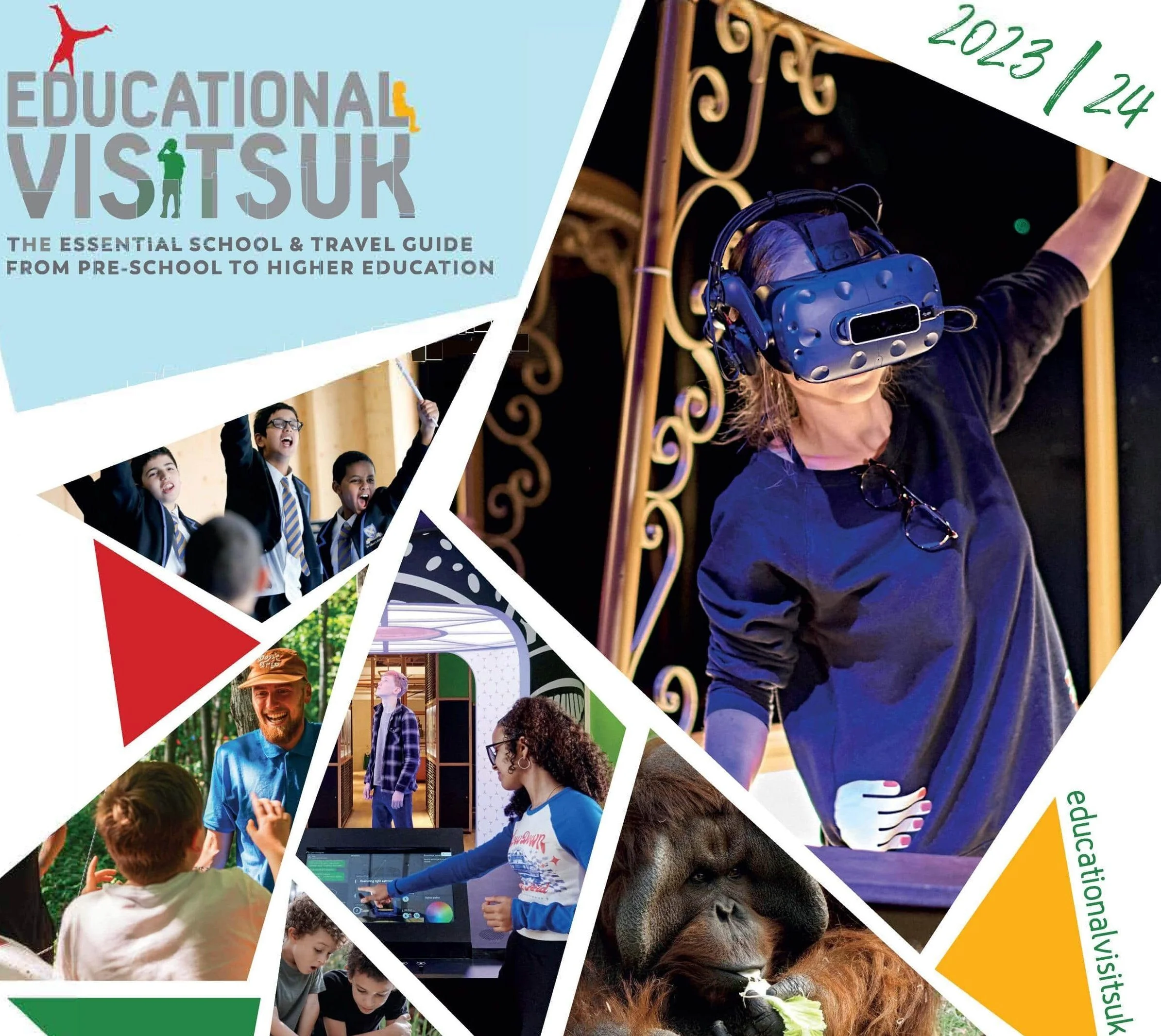
Educational & Unforgettable
Educational visits is a one stop shop for exciting and inspiring school visits. Our huge range of fantastic attractions and top quality accommodation means we have something for students of any age and at any academic stage. Whether you know exactly what you want or need a little inspiration, we make it easier than ever to plan an educational and unforgettable trip .
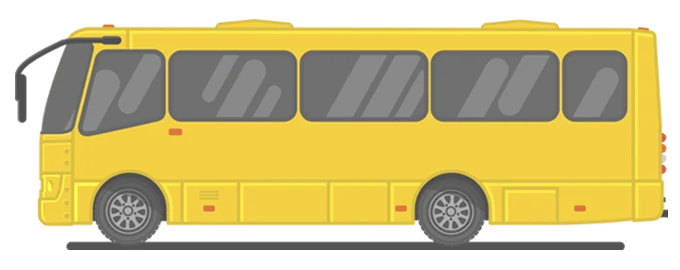
View all Attractions

Browse by Subject
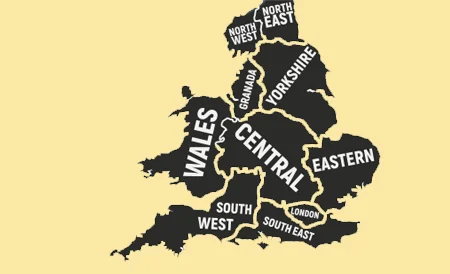
Browse by Region

Find Accommodation

Upcoming Events
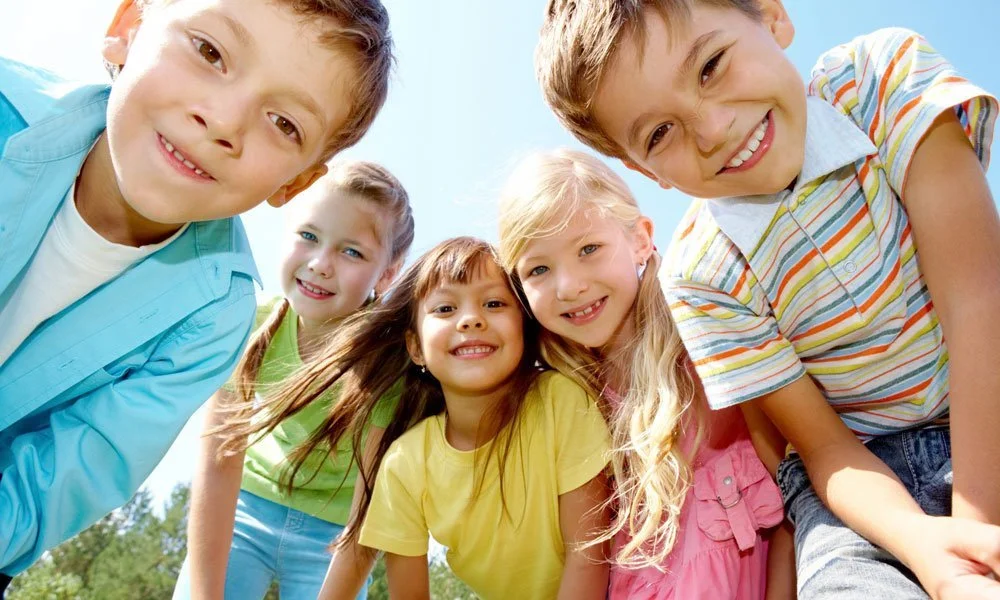
Read the blog
Featured attractions, tailor made school trips.
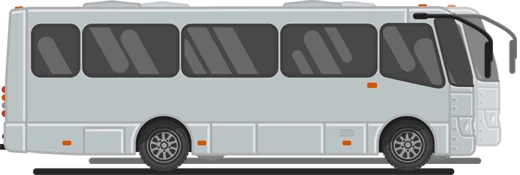
Struggling to piece it all together?
We are experts at planning school trips let us do the hard work.
We can also create tailor made educational trips to your specification, so whether it’s key stage 2 maths or GCSE biology all you have to do is get in touch and we’ll plan, book and deliver an educational and engaging trip perfect for your students. Group rates and free teacher places are also available. Get out of the classroom today!
Is your Attraction or Museum missing from our website? Contact us today and let’s get you listed! 01677 427334

Go Ape – Learning is always an adventure

Stratford Butterfly Farm celebrates the first anniversary of Kenny the Caiman!

Educational Easter at Stratford Butterfly Farm

It must be lambs, lambs, lambs! Suggs from Madness helps name lamb triplets live on BBC Radio 2

British Motor Museum to host ‘Rustival’
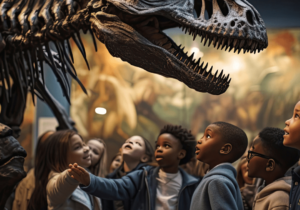
School Trip Ideas for Teachers

Wonky Christmas Trees have arrived at Noah’s Ark Zoo Farm
Educational visits is a one stop shop for exciting and inspiring school visits. Our huge range of fantastic attractions and top quality accommodation means we have something for students of any age and at any academic stage. Whether you know exactly what you want or need a little inspiration, we make it easier than ever to plan an educational and unforgettable trip .
Site Visit Guide
Learning in action.
A Guide to Conducting High-Impact School Visits
Prepared by the Great Schools Partnership for the New England Secondary School Consortium
*This guide was adapted from Learning in Action: How to Conduct and Learn From High-Quality Site Visits , a Smaller Learning Communities Program resource created by Pamela Fisher. Reproduced with permission from the U.S. Department of Education (Contract No. ED-04-CO-0021/0001).
Each year, members of the New England Secondary School Consortium’s League of Innovative Schools conduct site visits to other member schools. These first-hand observations of school-improvement in practice are a critical part of the regional learning and networking experience that the Consortium is working to facilitate. For this reason, the Great Schools Partnership adapted this step-by-step guide, which will help visiting school teams select appropriate schools, explore the right programs, investigate the evidence of success, and follow up with a practical strategy for sharing and implementing what they have learned with colleagues at their own school. When well planned and thoughtfully coordinated, site visits are powerful professional learning experiences that can make a significant contribution to advancing school improvement.
Designed to offer practical guidance in an accessible, straightforward, user-friendly format, Learning in Action will help teams maximize their time when visiting another school. This guide contains checklists to help both the visiting and host schools plan and conduct high-impact site visits, in addition to a recommended three-day site-visit schedule that can be modified as needed.
Since site visits allow for only a partial glimpse of strategies that, in many cases, have been developed and refined over years, the recommended three-day site visit builds in time for educators—who may have varying levels of understanding and commitment to school redesign—to absorb, understand, and embrace new ideas. For these and other reasons, the guide urges schools to allocate sufficient time for both the planning process and the site visit itself. When a site visit that is conducted in a spirit of thoughtful reflection and sharing, it creates a mutually beneficial learning experience for both the visiting and host schools.
Download → Learning in Action: A Guide to Conducting High-Impact School Vis i ts
482 Congress Street, Suite 500 Portland, ME 04101 Phone: (207) 773-0505 Fax: (877) 849-7052
Publications
On-demand strategy, speaking & workshops, latest articles, write for us, library/publications.
- Competency-Based Education
- Early Learning
- Equity & Access
- Personalized Learning
- Place-Based Education
- Post-Secondary
- Project-Based Learning
- SEL & Mindset
- STEM & Maker
- The Future of Tech and Work
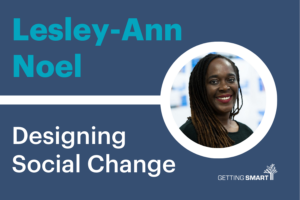
Dr. Lesley-Ann Noel on Designing Social Change
Getting smart and the d.school: live from sxsw, stacy wall schweikhart and dr. thomas lasley on learn to earn dayton, nell rosenberg on access and teleservices programs, recent releases.
Unfulfilled Promise: The Forty-Year Shift from Print to Digital and Why It Failed to Transform Learning
The Portrait Model: Building Coherence in School and System Redesign
Green Pathways: New Jobs Mean New Skills and New Pathways
Support & Guidance For All New Pathways Journeys
Unbundled: Designing Personalized Pathways for Every Learner
Credentialed Learning for All
AI in Education
For more, see Library | Publications | Books | Toolkits
Microschools
New learning models, tools, and strategies have made it easier to open small, nimble schooling models.
Green Schools
The climate crisis is the most complex challenge mankind has ever faced . We’re covering what edleaders and educators can do about it.
Difference Making
Focusing on how making a difference has emerged as one of the most powerful learning experiences.
New Pathways
This campaign will serve as a road map to the new architecture for American schools. Pathways to citizenship, employment, economic mobility, and a purpose-driven life.
Web3 has the potential to rebuild the internet towards more equitable access and ownership of information, meaning dramatic improvements for learners.
- Schools Worth Visiting
We share stories that highlight best practices, lessons learned and next-gen teaching practice.
View more series…
About Getting Smart
Getting smart collective, impact update, professional learning: the power of school visits.
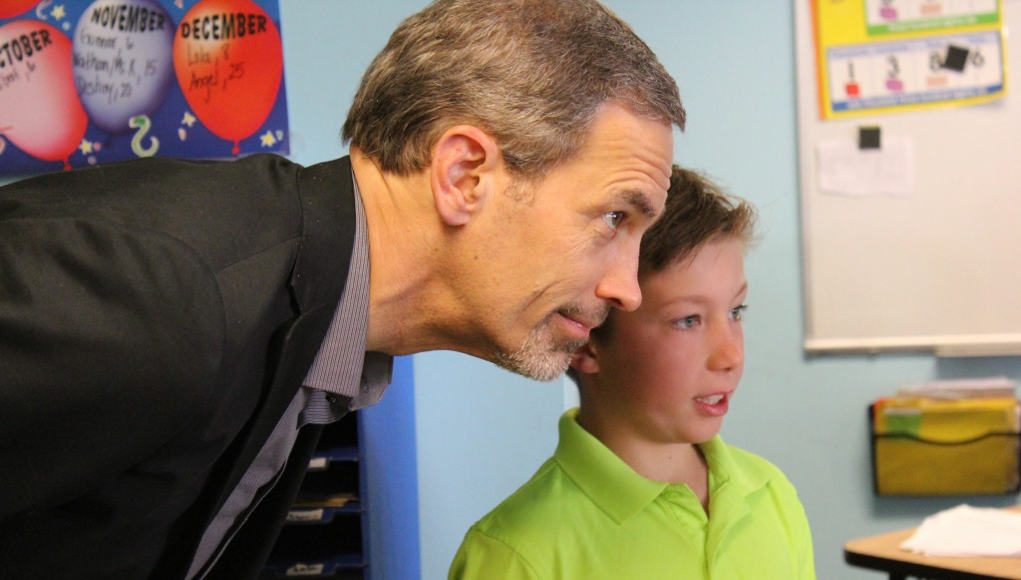
By Emily Liebtag and Tom Vander Ark
“Visiting these schools has shown me that what I thought was impossible for students I teach is possible.”
~ Attendee during a Kansas City Great Schools Project school visit to Thrive Public Schools in San Diego.
Aaron North, Vice President of Education at the Ewing Marion Kauffman Foundation, recently wrote in the Kansas City Star about the initiative they are leading and supporting in the hopes of enhancing the educational ecosystem in Kansas City: the Kansas City Great Schools Project (see the KCGreatSchools blog and #KCGreatSchools on Twitter to learn more about these trips).
In his article, North stated, “The national interests may want to take a look at the collaborative efforts emerging in Kansas City…In the last eighteen months, more than 300 people from a broad cross-section of the community have been part of visits to cities with concentrations of high-performing public schools.”
Participants, ranging from classroom teachers to architects from Kansas City, travel together to a region and learn about the local schools. Schools they visit typically are innovative in design instructional practices or are stellar examples of how to create equitable learning environments for each student in attendance.
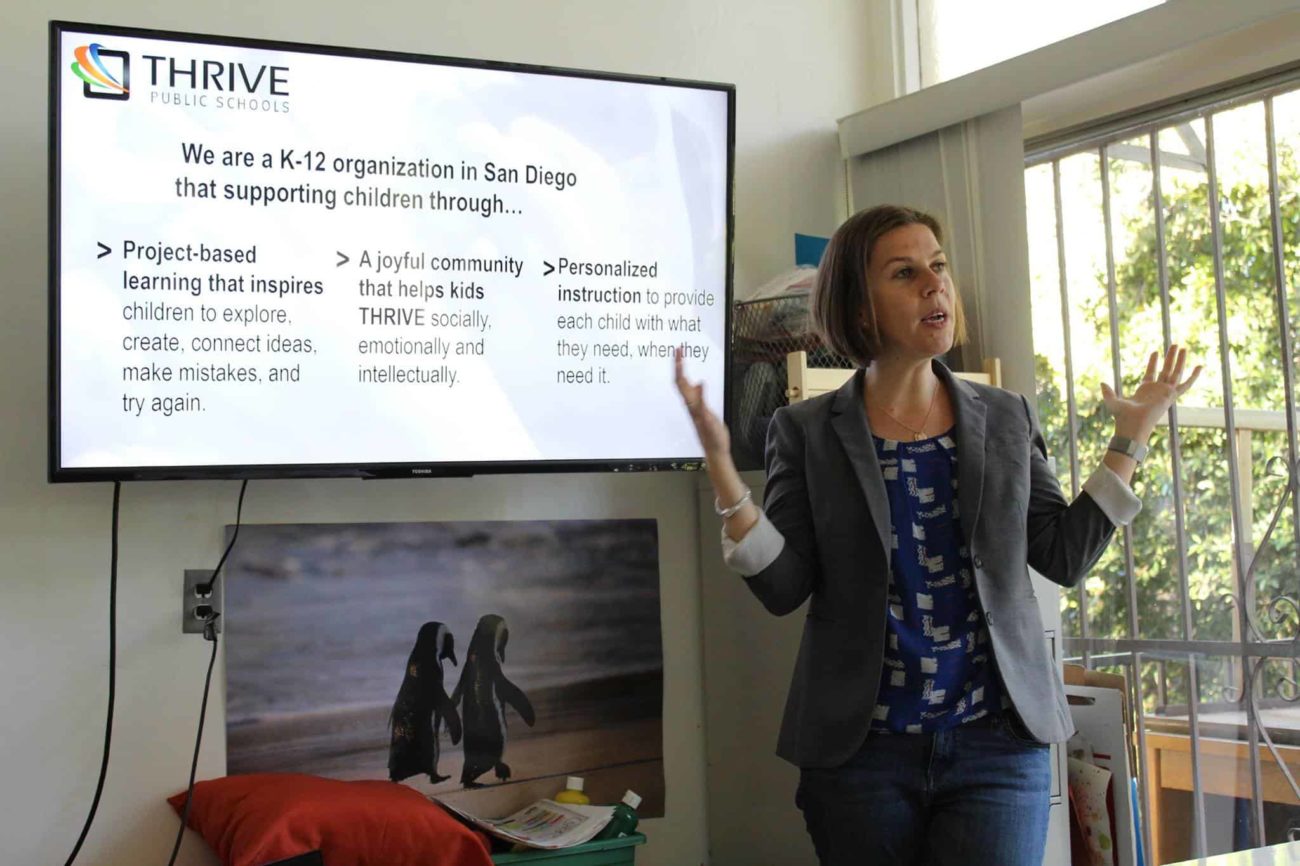
The schools are often a mix of traditional or charter schools, middle, high or elementary, but the goal is the same: empower trip attendees to continue the great work they are already doing to support Kansas City Public School students and to inspire them to take on a new idea, help solve a common challenge or rethink what is possible.
We are fortunate to be a part of this project and have witnessed incredible change, empowerment and spark amongst trip participants as a result of these school visits. We are confident that school visits are one of the best forms of professional learning . Time after time when we talk to inspiring leaders and educators, they tell us that they visited many different schools to better understand what goal, vision and next steps made sense for their school community.
Aside from the obvious fact that you’ll learn a lot from visiting a new place, here are a couple of reasons we feel school visits are a must-have item on any community or school member’s professional learning plan:
1. Hearing it from the source. We often hear educators express that they don’t want to hear advice from a facilitator or PD leader that has not actually lead the type of change they are attempting or want to try. They want to hear lessons learned directly from an in-service practitioner who personally navigated the challenges and witnessed the successes of change. Visiting schools provides participants with that opportunity.
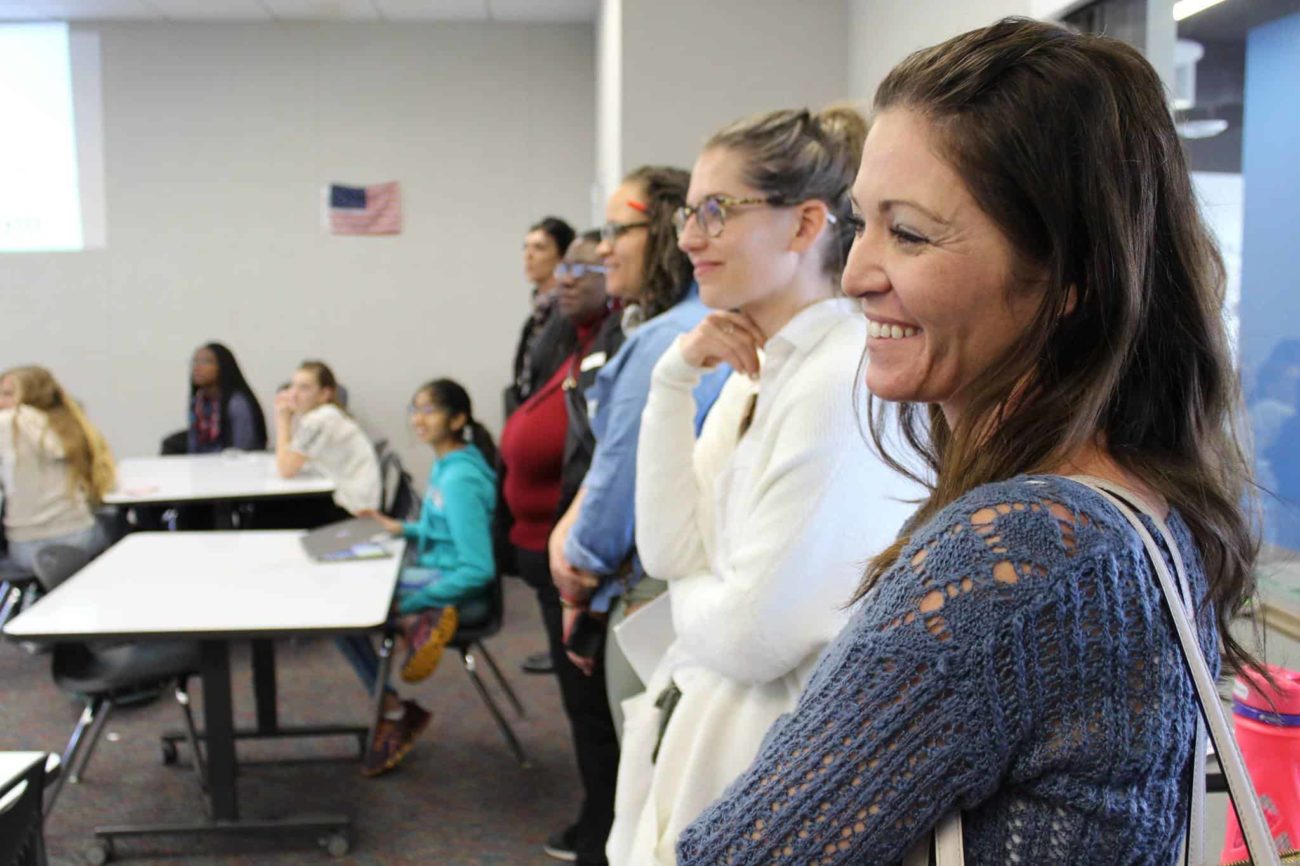
Seeing schools that are in a transition period is also helpful for educators seeking to implement a new idea. Always seeing a finished product or end result without seeing the path to get there can be deceiving. Every great school we visit will always say they are a work in progress. Seeing that progress in person is grounding for educators embarking on implementation of an idea.
3. Stepping outside your own comfort zone. We often replicate what we know, what we see peers or colleagues doing or what feels comfortable. Visiting schools in different cities (or within your own city) that do not look or feel anything like where you went to school or where you teach can help you step outside of your comfort zone. This creates a possibility to envision something different for students, or even see oneself in a teacher or a leader you meet.
4. Connecting and collaborating. When we travel to new places together, be it with other educators or with community members in a different profession, we inevitably make connections. Kansas City trip participants will attest to the fact they didn’t see at first how they could work with someone outside of the school. But joining in conversations on a school visit highlighted for them just how many ways their work overlapped. Furthermore, going on school visits allows for organic connections with teachers or leaders at other schools that might be great to collaborate with or share ideas.
5. Celebrating progress. An easy one to neglect, celebrating progress is an important reason for going on school visits. It is tempting to only aspire for something different or not acknowledge existing successes. Visiting other schools can be a great way to see similarities with practices you are already using or innovative ideas that your school is already implementing well.
A non-exhaustive list of schools and districts we have visited and been fortunate enough to learn from:
- 10 Reasons You Should Visit The American International School of Utah
- 20 Schools and Networks That Educate With A Sense of Place
- 4 Lessons Learned from a Silicon Valley School Tour
- 4.0 Schools Will Offer Launch Program 3 Times a Year
- Active Learning Inspires El Paso Teachers & Students
- Bay Blends Advance Personalized Learning
- Blended Learning Decisions in Action
- Blended Learning Strategy: Small Groups and Stations
- Blended, Project-Based and Social Emotional Learning at Thrive Public Schools
- Building Relationships and Expanding Expectations at Brooklyn Lab
- Career Path High: Career & College Ready Flex
- Chavez Schools: Where Grads Leave Ready to Make a Difference
- Cool Schools: 3 High School Options in Tacoma
- D.C. Extends Performance Contracting from K-12 to Pre-K, Residential & Adult Ed
- Denver Public Schools Partners with KIPP Colorado for Student Success
- Designed for Learning: At School and At Home
- Do You Have A Blended Learning Department? (Washington DC)
- Education for Change: Epic Turn Around in Oakland
- Fulfilling an Urban Promise in Oakland
- Grant-Beacon Middle School Builds Character, Extends and Blends Learning
- Horace Mann Elementary: Where A Shared Pedagogy Vision Informs Design Principles (podcast)
- Innovative Blend Could be the Spark for South Africa
- Houston High Schools Provide Career Options and Choice for Students
- Innovative Primary School Puts Down Roots in Denver
- Innovative Urban Education in Denver
- Iteration in Action: Denver School of Innovation and Sustainable Design
- Kepner Keeps True to the Innovation Model
- Language Learning Engages Houston Students
- My First School Visit: Project-Based STEM at TAF
- Nexus Lansing: A New High School Experience
- Pennsylvania Charter Emphasizes Liberal Arts for Success
- Personalization and Real-World Learning at Big Picture Schools
- Personalized Learning in Boston For Youth That Need it Most
- PhotoBlog | Teton Science Schools & The Power of Place-Based Learning
- Projects, Design Thinking and SEL Done Well at Milton Hershey School
- Quality Project-Based Learning at Katherine Smith Elementary
- Radical Personalization + Knowledge in Action at d.Tech High
- Re-Engineering HigherEd: Student-Centered Learning at Olin College
- Student Ambassadors Build Leadership Skills While Showcasing School
- The Micro-School Opportunity
- University Academy Closing the Opportunity Gap
- Wall-to-Wall Project-Based Middle School Learning
School visits can be a powerful part of a professional learning plan and a critical part of a school transformation effort. It expands your sense of what’s possible and informs the path forward. We’re planning fall school visits—contact [email protected] if you’re interested.
Many of these visits were in partnership with the Kauffman Foundation. Almost 300 community members from Kansas City have visited schools around the country thanks to the Ewing Marion Kauffman Foundation as part of the Kansas City Great Schools initiative (check out #KCGreatSchools and also see their blog ), which was designed to expose “community members to cities with concentrations of high-performing public schools serving a similar population of students as those in Kansas City’s public schools.” Participants get a chance to see design-built schools and those still on a journey–each with their own unique structure, culture and curriculum.
For more, see:
- 85 Elementary and Middle Schools Worth Visiting
- 100 Middle and High Schools Worth Visiting
- 30 Districts Worth Visiting
Stay in-the-know with all things EdTech and innovations in learning by signing up to receive the weekly Smart Update . This post includes mentions of a Getting Smart partner. For a full list of partners, affiliate organizations and all other disclosures please see our Partner page .

Emily Liebtag
- @EmilyLiebtag
Discover the latest in learning innovations
Sign up for our weekly newsletter.
Related Reading
Impact update 2023.

Building the Car While We’re Driving It: Lessons Learned and Back-to-School Priorities in Four Districts
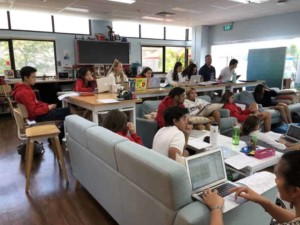
Alive With Possibility: 20 Tips for Creating Responsive Schools
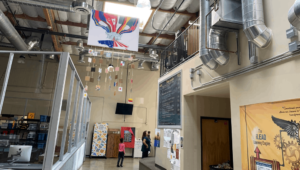
iLEAD Schools Creating Authentic, High Quality Project-Based Learning Environments
Leave a comment.
Your email address will not be published. All fields are required.
Nominate a School, Program or Community
Stay on the cutting edge of learning innovation.
Subscribe to our weekly Smart Update!
Smart Update
What is pbe (spanish), designing microschools download, download quick start guide to implementing place-based education, download quick start guide to place-based professional learning, download what is place-based education and why does it matter, download 20 invention opportunities in learning & development.
Educational visits policy: model and examples
An educational visits policy provides support for staff in the effective and safe planning and operation of school trips. this policy isn't statutory, but it's best practice to have one. download our model policy with practical templates in the appendices, and see examples from other schools..
- Download our model policy
Examples of school policies
Trinity School Sevenoaks
Primary schools
- Benedict Biscop Church of England Academy, Sunderland
- Highgate Primary School, Haringey
Secondary schools
- St Angela's Ursuline School, London
- Lord Williams's School, Oxfordshire
This article is only available for members
Want to continue reading?
Start your free trial today to browse The Key Leaders and unlock 3 articles.
Already a member? Log in

Start getting our trusted advice
- Thousands of up-to-the-minute articles
- Hundreds of templates, letters and proformas
- Lawyer-approved model policies

Your browser is not supported
Sorry but it looks as if your browser is out of date. To get the best experience using our site we recommend that you upgrade or switch browsers.
Find a solution
Welcome to schooltravelorganiser.com. This site uses cookies. Read our policy .
- Skip to main content
- Skip to navigation
- hot-topics Useful Links
- Online E-magazine

- Back to parent navigation item
- School Travel Organiser Magazine
- News & Ideas
- School Travel Awards
- Awards Website Home
- Awards Partners
- 2024 Ceremony Tickets / Info
- 'My Best School Trip' Award
- School Trip Champion Award
- Education / Learning Team of the Year
- 2023 Winners
- 2023 Photo Gallery
- 2023 Video Highlights
- LOtC Yearbook
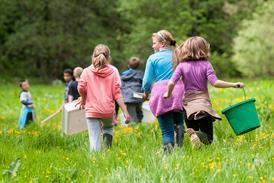
- More from navigation items
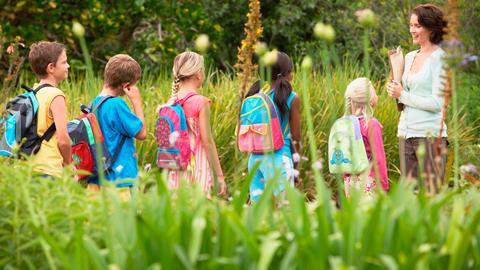
Source: ING

What an Educational Visits Co-ordinator should know
2019-11-01T15:18:00+00:00
Teacher John Dabell shares his thoughts on why every school should appoint an Educational Visits Coordinator (EVC) and what their role is.
Every school should appoint an Educational Visits Co-ordinator to take responsibility for all learning outside the classroom opportunities and to support their colleagues planning and managing off-site visits.
The EVC is a key post because it involves shaping high quality provision and ensuring children receive a range of activities to learn in the real-world and experience adventure.
It’s a dynamic, hands-on position that makes a huge contribution to the personal development of all pupils and the health and wellbeing of the school community. This is about making a positive impact on people’s lives, widening horizons and developing their social and emotional intelligence so an EVC adds considerable value to the whole school.
“The EVC is a school’s nucleus for planning, leading, monitoring and evaluating visits and ensuring all children can access a rich and rounded set of experiences.”
The EVC job straddles the whole curriculum and raises achievement by supporting subject areas throughout the school. One of its key functions is to champion all aspects of visits and outdoor learning so that there are engaging, relevant, enjoyable and memorable learning opportunities beyond the classroom for every pupil.
An EVC is both conductor and musician playing many instruments and the roles and responsibilities are wide-ranging requiring a Swiss-Army knife skills set although the competence required will vary according to school size and activities proposed.
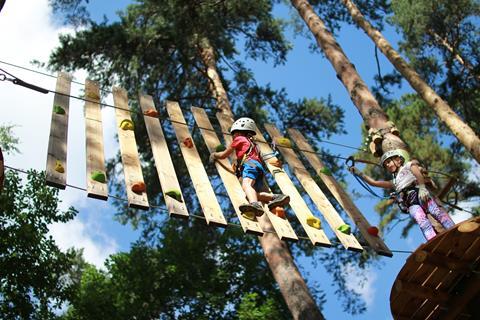
A key role of an EVC is to champion all aspects of visits and outdoor learning.
Responsibilities will range from having policies and procedures in place, ensuring water-tight audit trails, understanding risk management, leading trips, assessing outcomes and monitoring systems, activities and practicalities.
Anyone appointed as an EVC will normally have training and practical leadership experience over a number of years. However, even if you are an experienced EVC then there is always plenty to know in terms of health and safety, planning, management, mentoring and steering, advising and guiding the working practices of colleagues. Keeping skills updated is essential so that learning and professional development is never off the radar and further training needs can be clearly identified.
The ‘go to’ place for support is the Outdoor Education Advisers’ Panel (OEAP) which produces freely available National Guidance, an online resource for the management of outdoor learning, off-site visits and learning outside the classroom. These include documents relating to the ‘basics’, good practice, legal framework and employer systems, policies, checklists and model forms.
Everything you need to do your job effectively can be found at the OEAP and guidance is constantly updated and amended so you can be sure you are keeping abreast, connected and in the know to lead with the kinetic energy the role demands. The OEAP recommend engaging an Accredited Member of OEAP who can provide high quality advice and training.
Related Content

Non-overnight school trips can resume from the autumn term
2020-07-06T13:57:00Z
The government has confirmed that schools can resume non-overnight domestic educational visits from September.

Covid-19: advice for teachers getting ready for life beyond the classroom
2020-06-16T16:09:00Z
The Outdoor Education Advisers’ Panel has issued updated advice for teachers about planning and managing learning outside the classroom.

Coronavirus: advice and information about school trips
2020-03-18T09:27:00Z
What to do if your visits in the UK and overseas have been affected? We bring together essential information from trusted sources.
More from Features

Zipping, bouncing and learning in historic mines and quarries
2024-04-19T07:58:00Z
There were surprises above and below ground as Rob Yandell was thrown off things, down things and around things at three of Zip World’s sites in North Wales.

What is good CPD and how to reassess your school’s approach
2024-04-18T14:25:00Z
The founder of the Teacher Development Trust, David Weston, gives the key ingredients for successful continuing professional development (CPD).

Pupils can race each other on new Minifigure Speedway
2024-04-18T12:02:00Z
We were among the first to try out LEGOLAND’s new rollercoaster, Minifigure Speedway. Here’s what we thought.
- Read the Latest Issue
- Discover our Media Pack
- Learning Outside the Classroom Yearbook
- Buy a Magazine Subscription
- Yandell Publishing
- Cookie Policy
- Terms & Conditions
- © Yandell Publishing Ltd
Site powered by Webvision Cloud
Cookies on GOV.UK
We use some essential cookies to make this website work.
We’d like to set additional cookies to understand how you use GOV.UK, remember your settings and improve government services.
We also use cookies set by other sites to help us deliver content from their services.
You have accepted additional cookies. You can change your cookie settings at any time.
You have rejected additional cookies. You can change your cookie settings at any time.
- Education, training and skills
- Pupil wellbeing, behaviour and attendance
- Health, safety and wellbeing in schools
Health and safety on educational visits
- Department for Education
Published 26 November 2018
Applies to England

© Crown copyright 2018
This publication is licensed under the terms of the Open Government Licence v3.0 except where otherwise stated. To view this licence, visit nationalarchives.gov.uk/doc/open-government-licence/version/3 or write to the Information Policy Team, The National Archives, Kew, London TW9 4DU, or email: [email protected] .
Where we have identified any third party copyright information you will need to obtain permission from the copyright holders concerned.
This publication is available at https://www.gov.uk/government/publications/health-and-safety-on-educational-visits/health-and-safety-on-educational-visits
Types of trip
The 2 main types of trip are:
- routine visits
- trips that need a risk assessment and extra planning
Routine visits
These involve no more than an everyday level of risk, such as for slips and trips, and are covered by a school’s current policies and procedures. They only need a little extra planning beyond the educational aspect of the trip and can be considered as a lesson in a different classroom.
Trips that need a risk assessment and extra planning
These are trips not covered by a school’s current policies. This could be due to considerations such as the:
- distance from the school
- type of activity
- need for staff with specialist skills
Sometimes a school may simply need to review its current plans or arrangements that were successful on previous trips. However, some trips will need a risk assessment, detailed planning and the informed approval of the headteacher or governing board. The person given the job of managing this should:
- have the skills, status and competence needed for the job
- understand the risks involved
- be familiar with the activity
Plans should be proportionate and sensible, focusing on how to manage genuine risks.
When to seek consent from parents or carers
A school must always get written consent for nursery-age children.
For children over nursery age, written consent is not needed for most trips, as they’re part of the curriculum. However, it’s good practice to tell parents or carers about them.
Written consent is usually only needed for trips that:
- need a higher level of risk assessment
- are outside normal school hours
The school can ask parents to sign a consent form when their child enrols. This will cover them for their whole time at the school. Advice on consent forms is available on the Outdoor Education Advisers’ Panel ( OEAP ) website.
A school should still tell parents or carers about such trips and give them the opportunity to withdraw their child.
Using outside organisations
Schools using an outside organisation to provide an activity must check the organisation has appropriate safety standards and public liability insurance.
The Council for Learning Outside the Classroom ( LOtC ) awards the Learning Outside the Classroom Quality Badge to organisations that meet nationally recognised standards.
Schools can check if an organisation holds the LOtC Quality Badge .
If an organisation does not hold the badge, the school must ensure that they’re an appropriate organisation to use. This could include checking:
- their insurance
- that they meet legal requirements
- their health and safety and emergency policies
- their risk assessments
- control measures
- their use of vehicles
- staff competence
- safeguarding
- accommodation
- any sub-contracting arrangements they have
- that they have a licence, where needed
The school should have an agreement with the organisation that makes it clear what everyone is responsible for. This is especially important if they will be taking over supervision of the children.
Adventure activities: caving, climbing, trekking and watersports
These kinds of activities should be identified and risk assessed as part of the visit beforehand. Staff managing or leading visits must not decide to add such activities during the trip. They should always consider the abilities of the children when assessing risk.
Organisations need a licence to provide some adventure activities. Organisations that hold the LOtC Quality Badge should hold a licence for the activity they provide.
Information about licensing is available on the Health and Safety Executive ( HSE ) website.
Watersports
When planning watersports, schools should consider the need for:
- instructors
A school should take particular care when using hotel swimming pools and other water-based leisure facilities that may not have a trained lifeguard on duty. Although there are no swimming-pool-specific health and safety laws, the OEAP provides useful advice about undertaking adventure specialist activities, including swimming.
Trips abroad
Trips abroad can present extra risks and need a higher level of risk assessment.
Schools should make sure that any organisation providing activities holds the LOtC Quality Badge or similar local accreditation.
The HSE does not cover incidents overseas. However, it can investigate work carried out in Britain to support the trip, such as a risk assessment. School staff could be liable under civil law for any injuries to the children due to negligence.
If the trip includes significant risks, such as challenging terrain, a remote location or an extreme climate, a school should follow the guide to the British Standard for adventurous activities outside the United Kingdom as the basis for its planning and risk assessment. Organisations employed by the school should follow this, too. If they have a LOtC Quality Badge, they follow this standard.
Schools should consider the Foreign and Commonwealth Office’s detailed guidance on safer adventure travel and volunteering overseas and foreign travel advice when organising a visit abroad.
Knowing what to do in an emergency
Schools should have an emergency response plan that covers what to do if there is an incident away from school. They should also have a communications plan that covers how routine communications should be handled, including regular check-ins and calls to reassure people. Trip leaders should be familiar with the plan.
Schools can get advice on creating a communications plan from their outdoor activity adviser or the OEAP website .
Evaluating trips
A school should set up a clear process for evaluating all visits once they have been concluded, from the planning through to the visit itself. It should keep a record of any incidents, accidents and near-misses.
This will help it:
- evaluate whether its planning has worked
- learn from any incidents which took place
Educational visits coordinators
Schools should appoint an educational visits coordinator and make sure they have the training they need. The headteacher assumes this duty if there is no coordinator. Local authorities or academy trust outdoor education advisers can advise on appointing and training coordinators.
The coordinator works with the outdoor education adviser to help their colleagues in school to assess and manage risks.
The coordinator should:
- be an experienced visits leader
- have the status to be able to guide the working practices of other staff
- be confident in assessing the ability of other staff to lead visits
- be confident in assessing outside activity providers
- be able to advise headteachers and governors when they’re approving trips
- have access to training, advice and guidance
Guidance is also available on the OEAP website .
Is this page useful?
- Yes this page is useful
- No this page is not useful
Help us improve GOV.UK
Don’t include personal or financial information like your National Insurance number or credit card details.
To help us improve GOV.UK, we’d like to know more about your visit today. We’ll send you a link to a feedback form. It will take only 2 minutes to fill in. Don’t worry we won’t send you spam or share your email address with anyone.
What is EVOLVE visits ?
EVOLVE visits is an online system for the planning, approval and management of educational visits, sports fixtures and extra-curricular activities.
It is proven to reduce paperwork, simplify procedures, produce self-review and inspection preparation data, and improve staff confidence in that they automatically follow both employer, and National Guidelines.
EVOLVE visits has been designed and developed by a team with extensive experience of implementing and managing IT systems in schools, and planning and co-ordinating educational visits. It is modular, flexible and designed to promote efficiency and confidence in those that use it... teachers.

Why do people choose EVOLVE visits ?
EVOLVE visits is an essential tool for planning and managing educational visits, on-site activities, after school clubs and sports fixtures. Developed by experienced teachers and educational practitioners, this innovative and market leading system has been designed with teachers in mind.
Get started with EVOLVE visits
Used and trusted by over 800,000 staff in over 22,000 educational establishments across the UK.
EVOLVE visits can be used on your desktop computer, tablet or mobile - perfect for on-the-go!
Systems to suit your needs as a school, college, youth centre, local authority or trust.
Unobtrusive
EVOLVE visits is there when you need it, prompting you only when required.
Comprehensive
One-stop-shop for everything 'learning outside the classroom'.
Full hosted on dedicated servers in state of the art UK data centre with a friendly support team on hand.
Online Form
Form dynamically determines which questions to ask based on previous responses and the specific approval requirements
Paperless System
EVOLVE is an online system designed to reduce bureaucracy and paperwork, and eliminate risk of missing forms in schoolbags!
SMS and Email Messages
Send text messages within EVOLVE to parents and carers based on a visit register – no need to use an external system to create groups of contacts
Link EVOLVE with your MIS system to avoid duplication of data entry
Staff can centrally record and manage consent online
EVOLVE is used by 28,000 schools across the UK and Spain.
EVOLVE Team on hand to answer any queries you have. We’re friendly – give us a call!
Fully-integrated and dynamic Help Pages in EVOLVE means you can always find help if you get stuck
Generate end of term or year reports to support students’ Record of Achievements, Staff Reviews and Inspections
Send messages to staff and notes to visit forms within EVOLVE for a full audit trail including read receipts
myEVOLVE allows parents and carers to view, pay and give consent for their child’s activities online
Store documents, risk assessments, policies and web links in one central place that can be accessed by all EVOLVE users
Fully Hosted
EVOLVE is hosted on state of the art servers in the UK - no software installation or maintenance required!
Outline Approval
Grant Outline Approval based on selected questions before users fully complete the form
Custom Sections
Add your own questions to EVOLVE to meet your own policies and guidelines
Share visit and activity information in school calendars or Outlook. Great for non-EVOLVE users!
“ Overall, the use of Evolve has completely revolutionised the management of all our external events and visits. ”
“ The benefits of using EVOLVE far outweigh the old system. ”
“ It has provided us a very effective tool to monitor schools’ compliance. ”
read the full case study

EVOLVE visits clients
Below is a selection of our EVOLVE visits customer base.
View all EVOLVE visits clients
Get started with EVOLVE visits today.
INTRODUCTION
Drop us a line and we will organise a remote demonstration.
2. Take a look around
REMOTE DEMONSTRATION
We will show you EVOLVE visits and answer any of your questions.
3. You're good to go!
Use EVOLVE visits to start managing all of your learning outside the classroom.

40 Facts About Elektrostal
Written by Lanette Mayes
Modified & Updated: 02 Mar 2024
Reviewed by Jessica Corbett

Elektrostal is a vibrant city located in the Moscow Oblast region of Russia. With a rich history, stunning architecture, and a thriving community, Elektrostal is a city that has much to offer. Whether you are a history buff, nature enthusiast, or simply curious about different cultures, Elektrostal is sure to captivate you.
This article will provide you with 40 fascinating facts about Elektrostal, giving you a better understanding of why this city is worth exploring. From its origins as an industrial hub to its modern-day charm, we will delve into the various aspects that make Elektrostal a unique and must-visit destination.
So, join us as we uncover the hidden treasures of Elektrostal and discover what makes this city a true gem in the heart of Russia.
Key Takeaways:
- Elektrostal, known as the “Motor City of Russia,” is a vibrant and growing city with a rich industrial history, offering diverse cultural experiences and a strong commitment to environmental sustainability.
- With its convenient location near Moscow, Elektrostal provides a picturesque landscape, vibrant nightlife, and a range of recreational activities, making it an ideal destination for residents and visitors alike.
Known as the “Motor City of Russia.”
Elektrostal, a city located in the Moscow Oblast region of Russia, earned the nickname “Motor City” due to its significant involvement in the automotive industry.
Home to the Elektrostal Metallurgical Plant.
Elektrostal is renowned for its metallurgical plant, which has been producing high-quality steel and alloys since its establishment in 1916.
Boasts a rich industrial heritage.
Elektrostal has a long history of industrial development, contributing to the growth and progress of the region.
Founded in 1916.
The city of Elektrostal was founded in 1916 as a result of the construction of the Elektrostal Metallurgical Plant.
Located approximately 50 kilometers east of Moscow.
Elektrostal is situated in close proximity to the Russian capital, making it easily accessible for both residents and visitors.
Known for its vibrant cultural scene.
Elektrostal is home to several cultural institutions, including museums, theaters, and art galleries that showcase the city’s rich artistic heritage.
A popular destination for nature lovers.
Surrounded by picturesque landscapes and forests, Elektrostal offers ample opportunities for outdoor activities such as hiking, camping, and birdwatching.
Hosts the annual Elektrostal City Day celebrations.
Every year, Elektrostal organizes festive events and activities to celebrate its founding, bringing together residents and visitors in a spirit of unity and joy.
Has a population of approximately 160,000 people.
Elektrostal is home to a diverse and vibrant community of around 160,000 residents, contributing to its dynamic atmosphere.
Boasts excellent education facilities.
The city is known for its well-established educational institutions, providing quality education to students of all ages.
A center for scientific research and innovation.
Elektrostal serves as an important hub for scientific research, particularly in the fields of metallurgy, materials science, and engineering.
Surrounded by picturesque lakes.
The city is blessed with numerous beautiful lakes, offering scenic views and recreational opportunities for locals and visitors alike.
Well-connected transportation system.
Elektrostal benefits from an efficient transportation network, including highways, railways, and public transportation options, ensuring convenient travel within and beyond the city.
Famous for its traditional Russian cuisine.
Food enthusiasts can indulge in authentic Russian dishes at numerous restaurants and cafes scattered throughout Elektrostal.
Home to notable architectural landmarks.
Elektrostal boasts impressive architecture, including the Church of the Transfiguration of the Lord and the Elektrostal Palace of Culture.
Offers a wide range of recreational facilities.
Residents and visitors can enjoy various recreational activities, such as sports complexes, swimming pools, and fitness centers, enhancing the overall quality of life.
Provides a high standard of healthcare.
Elektrostal is equipped with modern medical facilities, ensuring residents have access to quality healthcare services.
Home to the Elektrostal History Museum.
The Elektrostal History Museum showcases the city’s fascinating past through exhibitions and displays.
A hub for sports enthusiasts.
Elektrostal is passionate about sports, with numerous stadiums, arenas, and sports clubs offering opportunities for athletes and spectators.
Celebrates diverse cultural festivals.
Throughout the year, Elektrostal hosts a variety of cultural festivals, celebrating different ethnicities, traditions, and art forms.
Electric power played a significant role in its early development.
Elektrostal owes its name and initial growth to the establishment of electric power stations and the utilization of electricity in the industrial sector.
Boasts a thriving economy.
The city’s strong industrial base, coupled with its strategic location near Moscow, has contributed to Elektrostal’s prosperous economic status.
Houses the Elektrostal Drama Theater.
The Elektrostal Drama Theater is a cultural centerpiece, attracting theater enthusiasts from far and wide.
Popular destination for winter sports.
Elektrostal’s proximity to ski resorts and winter sport facilities makes it a favorite destination for skiing, snowboarding, and other winter activities.
Promotes environmental sustainability.
Elektrostal prioritizes environmental protection and sustainability, implementing initiatives to reduce pollution and preserve natural resources.
Home to renowned educational institutions.
Elektrostal is known for its prestigious schools and universities, offering a wide range of academic programs to students.
Committed to cultural preservation.
The city values its cultural heritage and takes active steps to preserve and promote traditional customs, crafts, and arts.
Hosts an annual International Film Festival.
The Elektrostal International Film Festival attracts filmmakers and cinema enthusiasts from around the world, showcasing a diverse range of films.
Encourages entrepreneurship and innovation.
Elektrostal supports aspiring entrepreneurs and fosters a culture of innovation, providing opportunities for startups and business development.
Offers a range of housing options.
Elektrostal provides diverse housing options, including apartments, houses, and residential complexes, catering to different lifestyles and budgets.
Home to notable sports teams.
Elektrostal is proud of its sports legacy, with several successful sports teams competing at regional and national levels.
Boasts a vibrant nightlife scene.
Residents and visitors can enjoy a lively nightlife in Elektrostal, with numerous bars, clubs, and entertainment venues.
Promotes cultural exchange and international relations.
Elektrostal actively engages in international partnerships, cultural exchanges, and diplomatic collaborations to foster global connections.
Surrounded by beautiful nature reserves.
Nearby nature reserves, such as the Barybino Forest and Luchinskoye Lake, offer opportunities for nature enthusiasts to explore and appreciate the region’s biodiversity.
Commemorates historical events.
The city pays tribute to significant historical events through memorials, monuments, and exhibitions, ensuring the preservation of collective memory.
Promotes sports and youth development.
Elektrostal invests in sports infrastructure and programs to encourage youth participation, health, and physical fitness.
Hosts annual cultural and artistic festivals.
Throughout the year, Elektrostal celebrates its cultural diversity through festivals dedicated to music, dance, art, and theater.
Provides a picturesque landscape for photography enthusiasts.
The city’s scenic beauty, architectural landmarks, and natural surroundings make it a paradise for photographers.
Connects to Moscow via a direct train line.
The convenient train connection between Elektrostal and Moscow makes commuting between the two cities effortless.
A city with a bright future.
Elektrostal continues to grow and develop, aiming to become a model city in terms of infrastructure, sustainability, and quality of life for its residents.
In conclusion, Elektrostal is a fascinating city with a rich history and a vibrant present. From its origins as a center of steel production to its modern-day status as a hub for education and industry, Elektrostal has plenty to offer both residents and visitors. With its beautiful parks, cultural attractions, and proximity to Moscow, there is no shortage of things to see and do in this dynamic city. Whether you’re interested in exploring its historical landmarks, enjoying outdoor activities, or immersing yourself in the local culture, Elektrostal has something for everyone. So, next time you find yourself in the Moscow region, don’t miss the opportunity to discover the hidden gems of Elektrostal.
Q: What is the population of Elektrostal?
A: As of the latest data, the population of Elektrostal is approximately XXXX.
Q: How far is Elektrostal from Moscow?
A: Elektrostal is located approximately XX kilometers away from Moscow.
Q: Are there any famous landmarks in Elektrostal?
A: Yes, Elektrostal is home to several notable landmarks, including XXXX and XXXX.
Q: What industries are prominent in Elektrostal?
A: Elektrostal is known for its steel production industry and is also a center for engineering and manufacturing.
Q: Are there any universities or educational institutions in Elektrostal?
A: Yes, Elektrostal is home to XXXX University and several other educational institutions.
Q: What are some popular outdoor activities in Elektrostal?
A: Elektrostal offers several outdoor activities, such as hiking, cycling, and picnicking in its beautiful parks.
Q: Is Elektrostal well-connected in terms of transportation?
A: Yes, Elektrostal has good transportation links, including trains and buses, making it easily accessible from nearby cities.
Q: Are there any annual events or festivals in Elektrostal?
A: Yes, Elektrostal hosts various events and festivals throughout the year, including XXXX and XXXX.
Was this page helpful?
Our commitment to delivering trustworthy and engaging content is at the heart of what we do. Each fact on our site is contributed by real users like you, bringing a wealth of diverse insights and information. To ensure the highest standards of accuracy and reliability, our dedicated editors meticulously review each submission. This process guarantees that the facts we share are not only fascinating but also credible. Trust in our commitment to quality and authenticity as you explore and learn with us.
Share this Fact:
Best Global Universities for Mechanical Engineering in Russia
These are the top universities in Russia for mechanical engineering, based on their reputation and research in the field. Read the methodology »
To unlock more data and access tools to help you get into your dream school, sign up for the U.S. News College Compass !
Here are the best global universities for mechanical engineering in Russia
Tomsk polytechnic university.
See the full rankings
- Clear Filters
- # 74 in Best Universities for Mechanical Engineering
- # 879 in Best Global Universities (tie)
Request Info
Try searching for:
Explore Majors & Programs , Clubs & Activities , Study Abroad , Housing & Dining , Cost & Financial Aid , Academic Calendars

August 29, 2024 / 3:30pm - 5:00pm Robert V. LaPenta Student Union, Jeanne & Steve McGrath Room A&B
September 5, 2024 / 3:30pm - 5:00pm Robert V. LaPenta Student Union, Jeanne & Steve McGrath Room A&B
September 12, 2024 / 3:30pm - 5:00pm Robert V. LaPenta Student Union, Jeanne & Steve McGrath Room A&B
Bilingual Extension: School Psychology (Advanced Certificate)
Request more information, why pursue bilingual extension certification.
With a bilingual extension to their certification, school psychologists are able to support students from diverse linguistic backgrounds, communicating with students in their native languages. Graduates who receive this extension will be trained to support students and families using a culturally and linguistically sensitive framework and in so doing become an essential resource to the school community.
Why pursue Bilingual Extension certification at Iona?
Gain competencies in our 15-credit program.
The Bilingual Extension to the MA School Psychology Program encompasses 15 credits designed to allow graduates the opportunity to gain competency in areas that include awareness and understanding of cross-cultural practices, and knowledge of second language acquisition processes in school-aged youth.
It also includes competency training and development in implementing culturally responsive school-based psychological evaluations and interventions.
Develop Knowledge and Skills
Graduates from this program gain first-hand knowledge of educational programs appropriate for bilingual learners and students from diverse language backgrounds. They also acquire the skills necessary to work in a competent and culturally sensitive manner with linguistically and culturally diverse students and their families.
Applicable Practicum Experience
The required practicum experience is designed to allow students to practice assessment and counseling skills in multicultural, multilingual school settings. This valuable experience will be directly applicable as graduates bring newfound skills and knowledge into their work settings.
Program Highlights
Save on Tuition
Those completing the MA in School Psychology need only take an additional six credits to earn the bilingual extension which saves considerably on tuition costs.
Earn a Degree and Advanced Certificate
Students enrolled in the MA in School Psychology can opt to take all bilingual extension courses simultaneously, thus earning both certifications at the time of graduation.
A Wide Array of Practicum Site Options
Students can choose from an extensive list of practicum sites with well qualified supervisors in order to complete the fieldwork hours needed for the extension.
Course Overview
The following courses are required to complete this 15-credit program.
- PSY 604 - Foundations of Bilingual and Multicultural Education (3 credits)
- PSY 619 - Bilingual Interviewing and Counseling (3 credits)
- PSY 638 - Social-Emotional Assessment of School-Aged Youth (3 credits)
- PSY 648 - Bilingual Psychological and Educational Assessments (3 credits)
- PSY 657 – Bilingual Practicum in School Psychology (3 credits)
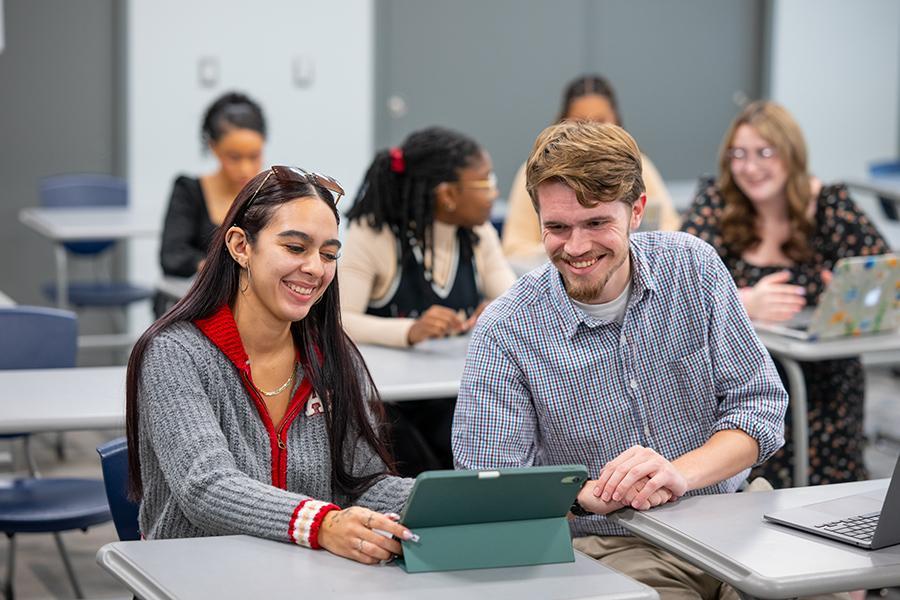
Find Out what an Iona Education Can Do For You
Apply today.
If you're considering applying to Iona, you're not alone! During the past two years, our new-student enrollment is up nearly 30% . Additionally, graduate students automatically qualify for consideration of merit scholarships during their graduate program.
Visit Campus
Our scenic campuses, located just 20 miles from midtown Manhattan, truly do offer the "best of both worlds." Let us show you around, answer your questions and give you a feel of our tight-knit community.
Learn more about Iona University today!
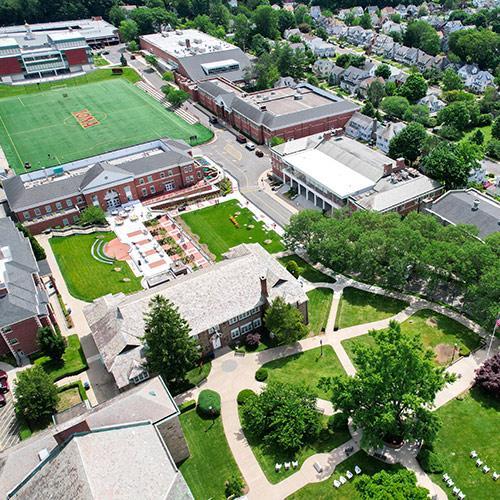
Campus calls to divest from Israel hinge on a tough question: Where's the money exactly?

Pro-Palestinian protesters at Columbia University yelled “disclose, divest, we will not stop” as they broke into Hamilton Hall earlier this week , demanding the school drop any investments in companies doing business in Israel.
But shedding those stakes first requires identifying them, and even that step — disclosure — can get tricky fast, higher education finance experts say. Many large university endowments are murkily set up with thousands of individual funds that have their own rules on how they’re invested, few requirements to share their investments publicly, and third-party managers whose oversight of day-to-day trading can limit campus officials’ knowledge of their own schools’ portfolios .
“I think a lot of people believe an endowment is a piggy bank, and it’s not,” said Bill Guerrero, chief financial officer at the University of Bridgeport, a private university in Connecticut.
School endowments are typically composed of many smaller funds, each with their own purposes, said Scott Malpass, who served for over three decades as the chief investment officer at the University of Notre Dame, a private Catholic institution outside of South Bend, Indiana, with nearly 9,000 students. During his tenure, which concluded with his 2020 retirement, the market value of the school’s endowment pool — a collection of several thousand distinct funds — grew from over $450 million in 1988 to more than $13.8 billion by the end of fiscal year 2019 .
“The big endowments have tried to improve on that in the last 20 to 30 years,” Malpass said of investment transparency, suggesting there may be room in some cases to go further.
The University of Bridgeport, with nearly $42 million in assets and fewer than 2,000 students, has individual fund agreements numbering in the hundreds, said Guerrero, in which donors can specify how they’d like their contributions invested. A given fund might, for example, be earmarked solely for environmentally friendly investments.
What’s more, many of these agreed-upon rules of investment are confidential, Guerrero said: “It’s very, very restrictive.”
Student demonstrators have seized on this opacity as part of their broader divestment push.
“It has been impossible to get Columbia to fully disclose their entire investment portfolio despite efforts from not just student organizers, but concerned faculty,” the Columbia Students for Justice in Palestine said in an Instagram post last week. “They have refused transparency for far too long.”
The university has rejected calls to divest from Israel and instead offered to “publish a process for students to access a list of Columbia’s direct investment holdings, and to increase the frequency of updates to that list of holdings.”
But direct investments rarely reflect the full scope of an institution’s portfolio. Many resemble a series of matryoshka dolls , in which some component funds that may not directly hold certain Israeli stocks could still have indirect ties to the country, for instance through mutual funds and exchange-traded funds that themselves may have exposure to Israel.
What’s more, universities tend to be mum about which asset management firms they hire to handle their investments — both direct and indirect ones. The Knight Foundation reached out to 50 U.S. colleges with some of the largest endowments last year, asking them to share details about the share of their funds managed by firms with diverse leadership. Only 18 participated fully, and eight others opted to self-report more limited data.
“Even as public-facing institutions, universities historically are not transparent about their financial affairs,” the researchers concluded .
“There’s no incentive” for institutions to share more details about their investments, Malpass acknowledged. Many institutions worry that publicizing too much information could allow others to copy their investment strategies or scare away asset managers that prefer keeping their client lists private.
By law, nonprofits like university endowments are required to report some information annually on the Internal Revenue Service’s Form 990. The document outlines the broad mix of assets (i.e., stocks versus bonds) that an endowment has invested in, but it doesn’t require granular detail on specific companies or industries those investments are focused on.
Many school endowment officers also publish their own annual reports to help students, faculty, alumni and donors understand how money has flown in and out of their portfolios over a given year. But these reports are optional, leaving it mostly up to university administrators to decide how much additional information to publicize.
Institutions with assets exceeding $100 million are also required to report holdings every three months through 13F filings, which are mandated by the federal Securities and Exchange Commission. But those snapshots aren’t comprehensive; for example, Columbia University’s endowment reported $13.6 billion in assets in June of last year , but 13F filings detailed only $68 million of those holdings , which include stakes in various therapeutics companies as well as Warren Buffett’s Berkshire Hathaway. With just 0.5% of the portfolio covered by 13F filings, the remaining 99.5% is outlined only in much broader strokes on the school’s Form 990.
In a statement to NBC News, Columbia University spokesperson Robert Hornsby said “we don’t share direct holdings beyond what is filed publicly, and nor do we disclose investment manager information.”
The complexity of endowment funds hasn’t stopped universities from making divestments in the past. Three years ago, several large schools agreed to reduce ties with the fossil fuel industry following students’ climate change protests. An investment policy guiding Columbia’s endowment now lists fossil fuels, thermal coal, private prison operators and tobacco as restricted industries.
Malpass, who restricted some exposure to drillers and oil exploration companies during his time at Notre Dame, said divesting stock holdings “isn’t challenging at all.” Many could be sold in a day, he said, though private investments could take longer to exit.
Some argue that even a widespread divestment push across American higher education, which seems unlikely, would have little impact on the war in Gaza.
“Corporate decisions are going to make a much bigger statement than divestment from a university endowment ever would,” said Chris Marsicano, the director of the College Crisis Initiative at Davidson College, a small liberal arts school in North Carolina.
Others have warned that selling shares of Israeli firms at a cheap price could benefit investors who support the country, noting that boycotts of goods tend to exert greater pressure than boycotts of stocks. There’s also the risk that pro-Palestinian divestment efforts could trigger an exodus of deep-pocketed university donors with countervailing sympathies.
Even so, Marsicano noted that pro-Palestinian campus protests are getting the attention of the Israeli government, with Prime Minister Benjamin Netanyahu denouncing them in an address last week.
“Divestment is definitely the vehicle to keep the protests going,” he said, “rather than the financial implications of divestment.”
Brian Cheung is a business and data correspondent for NBC News.
Who was the central Ohio high school Student of the Week? Your votes decide

The nominations for The Dispatch's Student of the Week initiative are in, and now it's time for you to pick the best of the best.
Voting is open until noon Thursday.
Participating high school principals, teachers and guidance counselors nominated students they say have shown outstanding academic and school achievement and community service.
Previous winner : Canal Winchester's Nathan Hagan named Dispatch Student of the Week
We will announce the winner and runner-up on Friday.
To cast a vote, visit the poll at the bottom of the list of nominees.
If you can't see the ballot when you scroll to the bottom of this story, try refreshing the link or clearing the cache in your browser. Voters can cast one vote per hour per device. You do not have to be a subscriber to vote.
Please be aware : The Dispatch's voting system recognizes only one vote per WiFi IP address, so consider taking your phone off WiFi to vote each hour if you're sharing it with multiple people.
The nominees for April 29:
Lily Kissinger, Canal Winchester : “Currently boasting a 4.1 GPA, Lily is an exceptional scholar and athlete. As a sophomore, she is taking several advanced courses and is committed to performing at her personal best not only inside the classroom but also in extracurricular activities. Her selflessness and encouragement toward others can be seen while playing sports and performing in the classroom. Lily is a driven individual who makes a great collaborator and deeply cares about the success of others as well as herself. Lily often helps her classmates grasp concepts that she has already mastered. Lily is an absolute joy to have in class and other activities.”
Holden Osborne, DeSales : “Holden was awarded the Founders' Scholarship at Walsh University, earning him a full tuition award for all four years. Holden will be a part of the Walsh Honors Program and play baseball for the Cavaliers.”
Annual skilled trades competition builds technical and professional skills for Iowa students
- Wednesday, May 1, 2024
- Headline Story
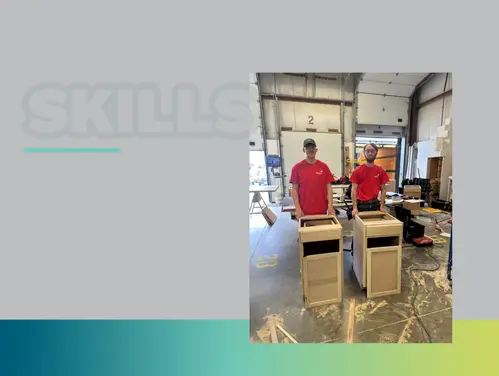
Southeast Polk senior Simon Frohock (R) competed in the cabinet making contest for a second year.
High-quality career and professional skill development took center stage last week as over 600 high school and college students took part in the annual SkillsUSA State Leadership and Skills Conference . Held in Ankeny at the Des Moines Area Community College campus, this two-day competition featured over 50 different leadership and technical competitions for students to test their technical skills and knowledge, explore career pathways and make valuable connections with local industry leaders.
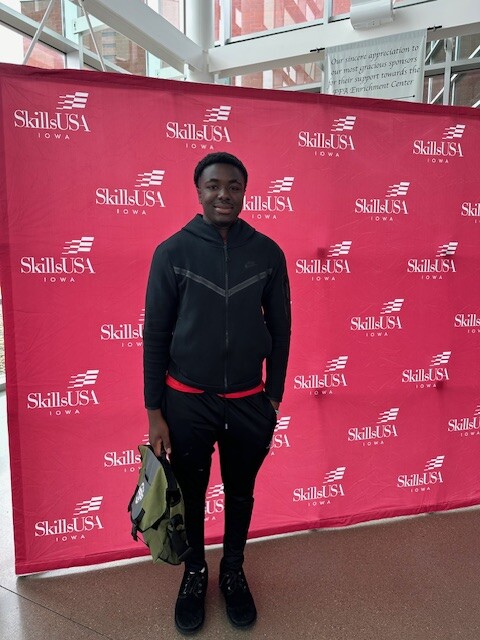
Southeast Polk High School seniors Delvis Kouete and Simon Frohock, both 17, were well-prepared for the competition, which featured timed activities related to industrial technology, carpentry, robotics, automotive repair and job interview techniques, among many others. For this year’s skills competition, Delvis competed in architectural drafting and was a member of the school’s quiz bowl team. Simon, the 2023 state champion in cabinet making, returned for a second year in the cabinet making contest. Both students competed well in their individual competitions, with Delvis placing fifth and Simon serving as this year’s runner-up.
“The skills competition can help you strive for excellence in your work and learning,” Simon said. “Even though it’s a competition and there is pressure to do well, it’s a good, low-risk way to see what an employee in this work has to do every day.”
Both Simon and Delvis noted that the competition not only helps to strengthen a student’s technical skills, but it also engages students in career pathway discovery and professional skill development.
“Being a part of SkillsUSA and competing in the skills competition has helped me learn new skills with my hands and work on teamwork, communication and leadership skills,” Delvis said. “You learn how to work with other people that aren’t like you and get your mind thinking about your future career.”
Along with the individual contests, all competitors at the SkillsUSA State Leadership and Skills Conference were required to submit a resume and take a professional development test that focused on workplace, professional and technical skills as well as overall knowledge of SkillsUSA.
“SkillsUSA helps provide real-world context to the content being taught by classroom educators,” said Kent Storm, state director for SkillsUSA Iowa. “Taking the learning beyond the classroom allows students to grow and learn next to industry partners and gain valuable experience."
As one of Iowa’s career and technical student organizations (CTSO) , SkillsUSA champions the skilled trades industry and provides opportunities for students to apply the skills they have developed in classrooms through conferences, competitions, community service events, worksite visits and other activities.
“Participation in a CTSO like SkillsUSA helps students gain hands-on experience and connect classroom curricula to careers,” said Cale Hutchings, education consultant at the Iowa Department of Education. “Through CTSOs, students can become leaders and strengthen their employability skills, which is valuable as they explore potential next steps in their college and career pathways.”
SkillsUSA boasts a roster of over 400,000 members nationwide. In Iowa, over 1,300 students and advisers in career and technical education programs participate in local SkillsUSA chapters.
At Southeast Polk, 21 student members are a part of their SkillsUSA chapter. Led by industrial technology teachers and chapter advisers Ryan Andersen and Brett Rickabaugh, the students have been involved with several community service projects, employer presentations and opportunities to work closely with instructors.
“Any time a student participates in SkillsUSA, it gives us more time with that student to elaborate on what we’ve learned in class,” Andersen said. “They can connect the idea to the planning, design and completion of a project and how that activity fits into a real career. That’s something we can’t replicate without a CTSO.”
Anderson also stated that students who participate in SkillsUSA and activities like the State Leadership and Skills Conference build confidence through their experiences.
“It really helps students to have the confidence to rely on their skills and what they know,” he said. “The skills competition requires them to use problem-solving skills and build off their knowledge to continue to learn and persevere.”
This year’s first-place winners at the SkillsUSA State Leadership and Skills Conference will move onward to compete with 6,000 other students at the national conference in Atlanta this June.
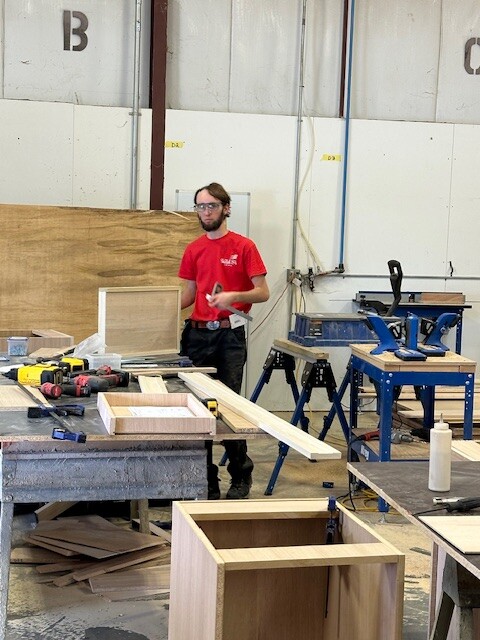
For Simon and Delvis, the skills competition was another step in building necessary skills and acumen for their futures. Simon, with his penchant for cabinet making, already has a full-time job lined up after graduation with a local cabinet shop. Additionally, Delvis would like to pursue something within the computer science field, perhaps in the coding or software engineering areas, and although he is changing fields, he believes SkillsUSA has helped him feel more prepared for the future.
“It has definitely helped me with skill-building and problem-solving,” he said. “What I’ve learned will be beneficial no matter what I decide to do next.”

IMAGES
VIDEO
COMMENTS
The Essence of Educational Visits. Educational visits, also known as field trips, offer students a hands-on experience that goes beyond the confines of the classroom. These visits provide students with the opportunity to explore and interact with different environments, cultures, and ideas. By stepping outside their comfort zones, students ...
Before your visit. Do your homework. Read about the schools you'll be visiting. Examine their school profiles on GreatSchools.org. Talk to other parents and check your local newspaper for articles about the schools. Contact the school. Most schools conduct regular school tours and open houses during the enrollment season — typically in the ...
Museums and school trips are both fun and educational. Students get to learn about different cultures, periods, and history and gain appreciation for the work of artists and scientists. ... Idea 4: Farm Visits. Educational trips for students, especially younger children, demand simplicity and fun learning. They barely understand the history of ...
Make the most of your visit to ensure a prospective school is right for your family. What to Ask on Your K-12 School Tour. Understanding a school's culture is essential. Asking staff how they ...
Educational Student Experiences in the USA. Offering a rich plethora of academic experiences, the USA is an ideal destination for your school trip abroad. Experience rich culture, visit iconic landmarks and participate in technology workshops at NASA. As a trip destination, the USA cannot be beaten. On a school trip to the USA, you can expect:
Evidence has been mounting for decades about the importance of both pre-visit preparation and post-visit follow-up activities to enhance learning outcomes associated with school field trips to places such as museums, zoos, aquariums, nature centers and parks (Anderson et al., 2000; Farmer & Wott, 1995; Gennaro, 1981; Smith-Sebasto & Cavern ...
A key outcome of educational visits is allowing students to better understand themselves and develop self-regulation skills. By being exposed to different environments and situations, students become more self-aware and learn to manage their emotions and behaviours effectively. Finally, educational visits allow students to celebrate their ...
Educational visits is a one stop shop for exciting and inspiring school visits. Our huge range of fantastic attractions and top quality accommodation means we have something for students of any age and at any academic stage. Whether you know exactly what you want or need a little inspiration, we make it easier than ever to plan an educational ...
Educational school visits can have extensive benefits for children with a range of special educational needs, including outcome-based affordances, learning engagement-related benefits and skill acquisition and development. ... School visits and field trips are also not compulsory within international education contexts, although they are ...
Learning outside the classroom is crucial, and that's why WorldStrides is accredited by the same educational bodies across North America and Canada that accredit K-12 schools. It allows us to offer students high school and college preparatory credit, and teachers free professional development. We even have a dedicated Curriculum and Academics ...
National Educational Visits Conference promises an 'inspiring day' 2024-03-15T13:29:00Z. EVCs and school/curriculum leaders can book their place to attend the National Educational Visits Conference which takes place in London on 13th June, organised by EVOLVE Advice.
Reproduced with permission from the U.S. Department of Education (Contract No. ED-04-CO-0021/0001). Each year, members of the New England Secondary School Consortium's League of Innovative Schools conduct site visits to other member schools. These first-hand observations of school-improvement in practice are a critical part of the regional ...
Aside from the obvious fact that you'll learn a lot from visiting a new place, here are a couple of reasons we feel school visits are a must-have item on any community or school member's professional learning plan: 1. Hearing it from the source. We often hear educators express that they don't want to hear advice from a facilitator or PD ...
school governors, trustees, proprietors and other employers, school visit co-ordinators, parents and other interested groups. It is aimed at educational organisations teaching children and young people aged 5 to 18 for visits outside the school, including sporting activities, cultural activities, field trips and any other off site activities.
Before a campus visit, students should do basic research on the school. Students and their families have various opportunities to ask questions. No question is dumb. College visits, whether in ...
An educational visits policy provides support for staff in the effective and safe planning and operation of school trips. This policy isn't statutory, but it's best practice to have one. Download our model policy with practical templates in the appendices, and see examples from other schools.
Welcome to Discover the World Education. With over 35 years experience organising worldwide educational and adventure travel, you can trust us to supply safe, quality tours that are informative and enjoyable for all members of your group. Bringing education to life is only limited by the imagination. Our trips not only provide fantastically ...
Every school should appoint an Educational Visits Co-ordinator to take responsibility for all learning outside the classroom opportunities and to support their colleagues planning and managing off-site visits. The EVC is a key post because it involves shaping high quality provision and ensuring children receive a range of activities to learn in ...
Routine visits. These involve no more than an everyday level of risk, such as for slips and trips, and are covered by a school's current policies and procedures. They only need a little extra ...
EVOLVE visits is an essential tool for planning and managing educational visits, on-site activities, after school clubs and sports fixtures. Developed by experienced teachers and educational practitioners, this innovative and market leading system has been designed with teachers in mind. Get started with EVOLVE visits.
Moscow, city, capital of Russia since the late 13th century. It is not only the political center of Russia but also the country's most populous city and its industrial, cultural, scientific, and educational capital. Moscow has also been the spiritual center of the Russian Orthodox Church for over 600 years.
Home to renowned educational institutions. Elektrostal is known for its prestigious schools and universities, offering a wide range of academic programs to students. Committed to cultural preservation. The city values its cultural heritage and takes active steps to preserve and promote traditional customs, crafts, and arts.
Germany. India. Italy. Japan. Netherlands. See the US News rankings for Mechanical Engineering among the top universities in Russia. Compare the academic programs at the world's best universities.
Loopholes in the Education Ministry's policies are allowing politicians to visit schools and political parties to use schools for their events, the Ombudsman has found. The investigation was ...
Megre shares his new outlook on education and children's real creative potential after a visit to a school where pupils build their own campus and cover the ten-year Russian school programme in just two years. Complete with an account of an armed intrusion into Anastasia's habitat, the book highlights the limitless power of Love and non-violence.
It also includes competency training and development in implementing culturally responsive school-based psychological evaluations and interventions. Develop Knowledge and Skills. Graduates from this program gain first-hand knowledge of educational programs appropriate for bilingual learners and students from diverse language backgrounds.
More than 100 individuals arrested at protests at two campuses in New York were not affiliated with the schools, according to the mayor and New York Police Department (NYPD) commissioner. At ...
During his tenure, which concluded with his 2020 retirement, the market value of the school's endowment pool — a collection of several thousand distinct funds — grew from over $450 million ...
To cast a vote, visit the poll at the bottom of the list of nominees. If you can't see the ballot when you scroll to the bottom of this story, try refreshing the link or clearing the cache in your ...
High-quality career and professional skill development took center stage last week as over 600 high school and college students took part in the annual SkillsUSA State Leadership and Skills Conference.Held in Ankeny at the Des Moines Area Community College campus, this two-day competition featured over 50 different leadership and technical competitions for students to test their technical ...